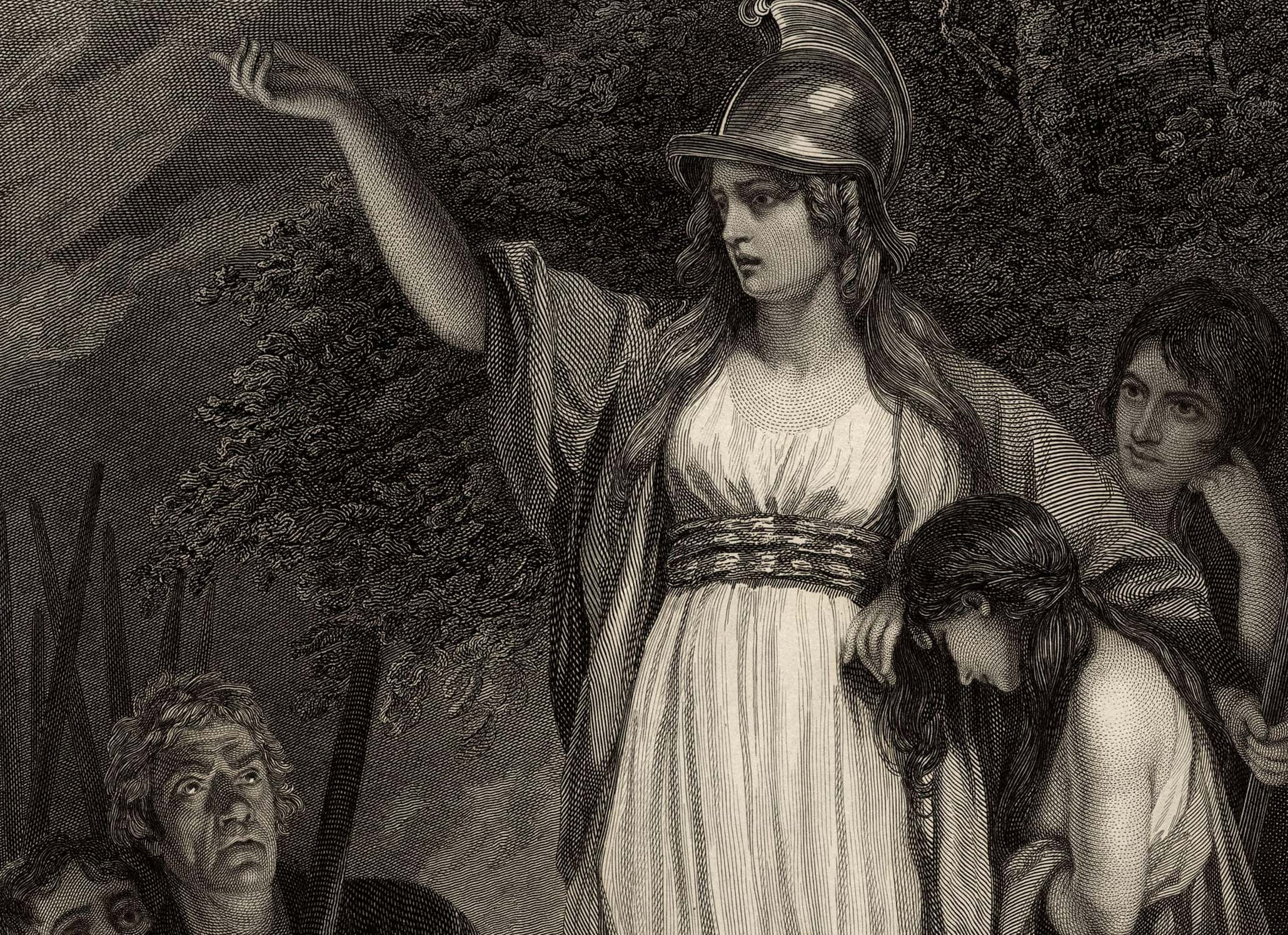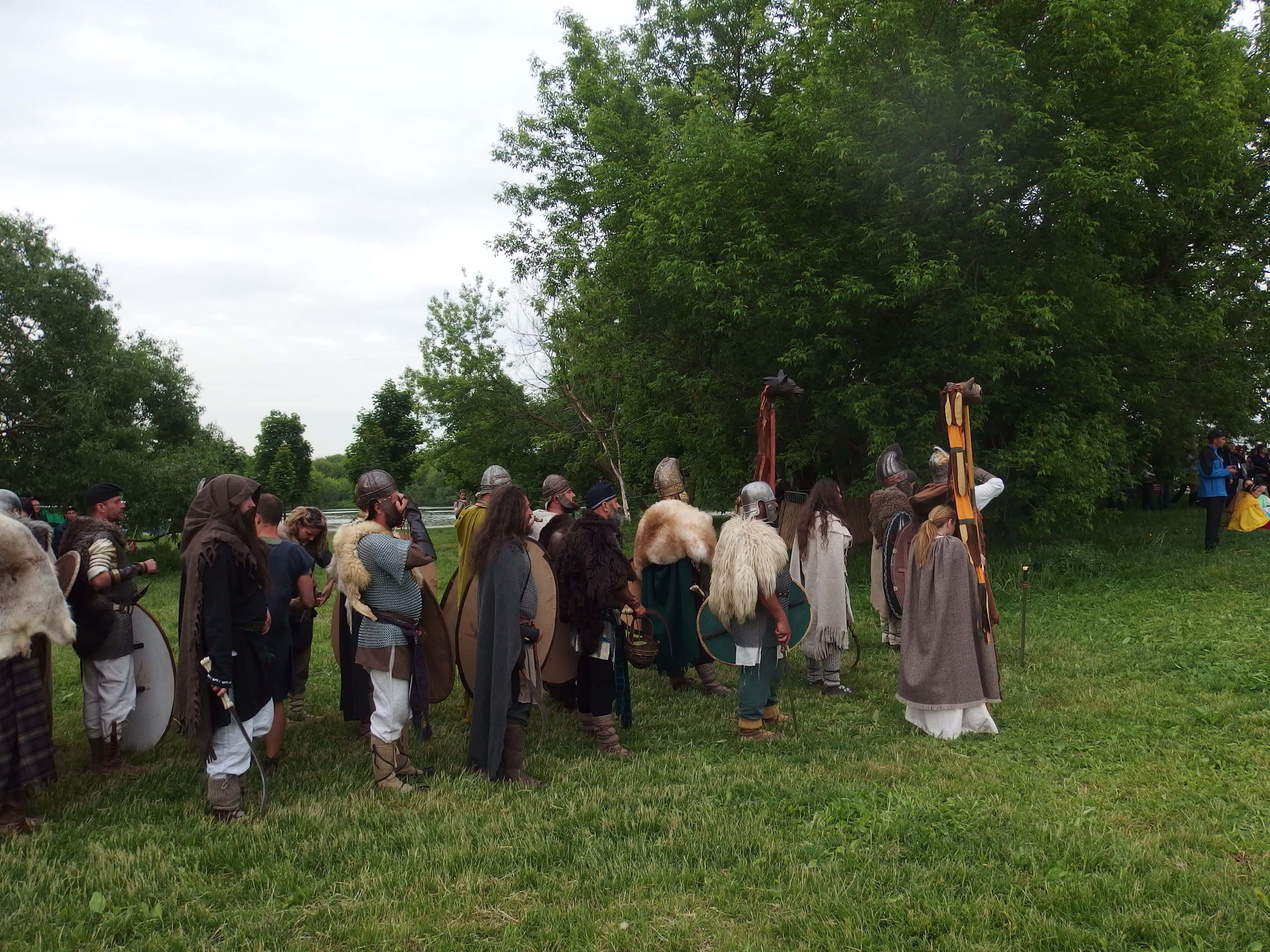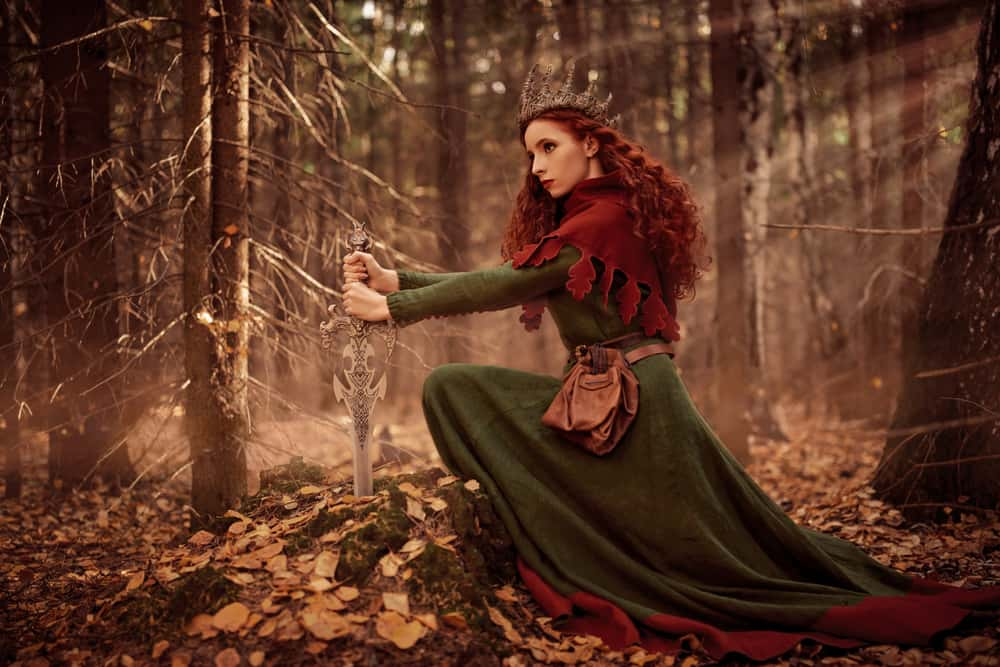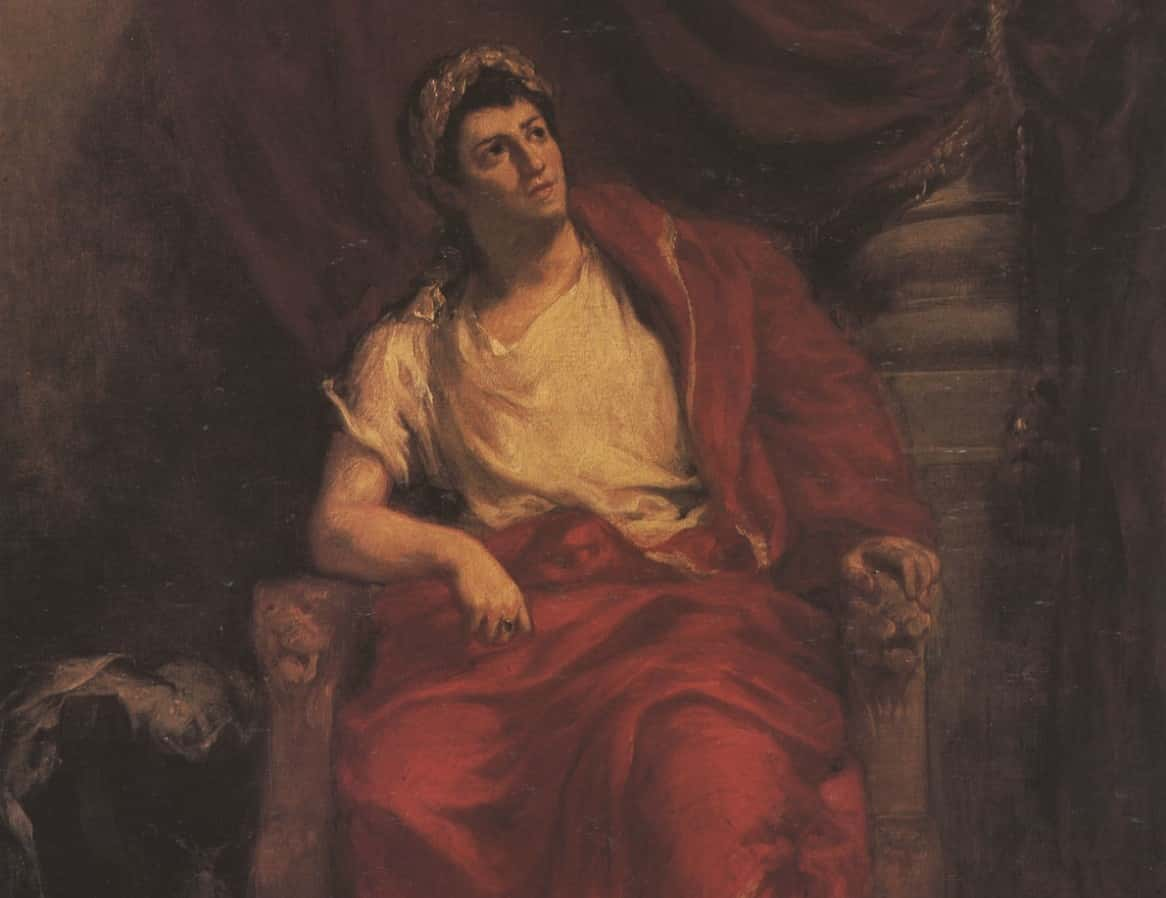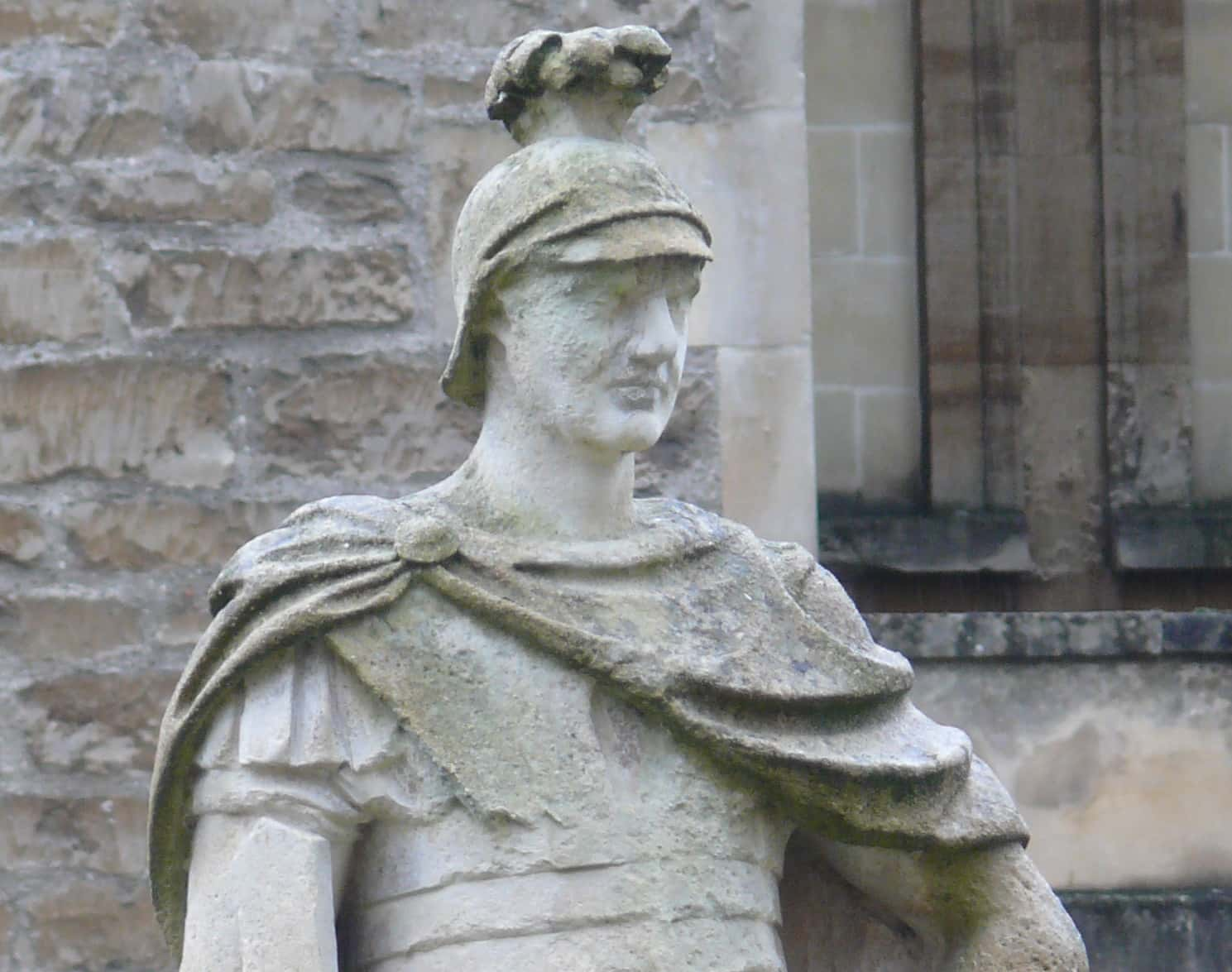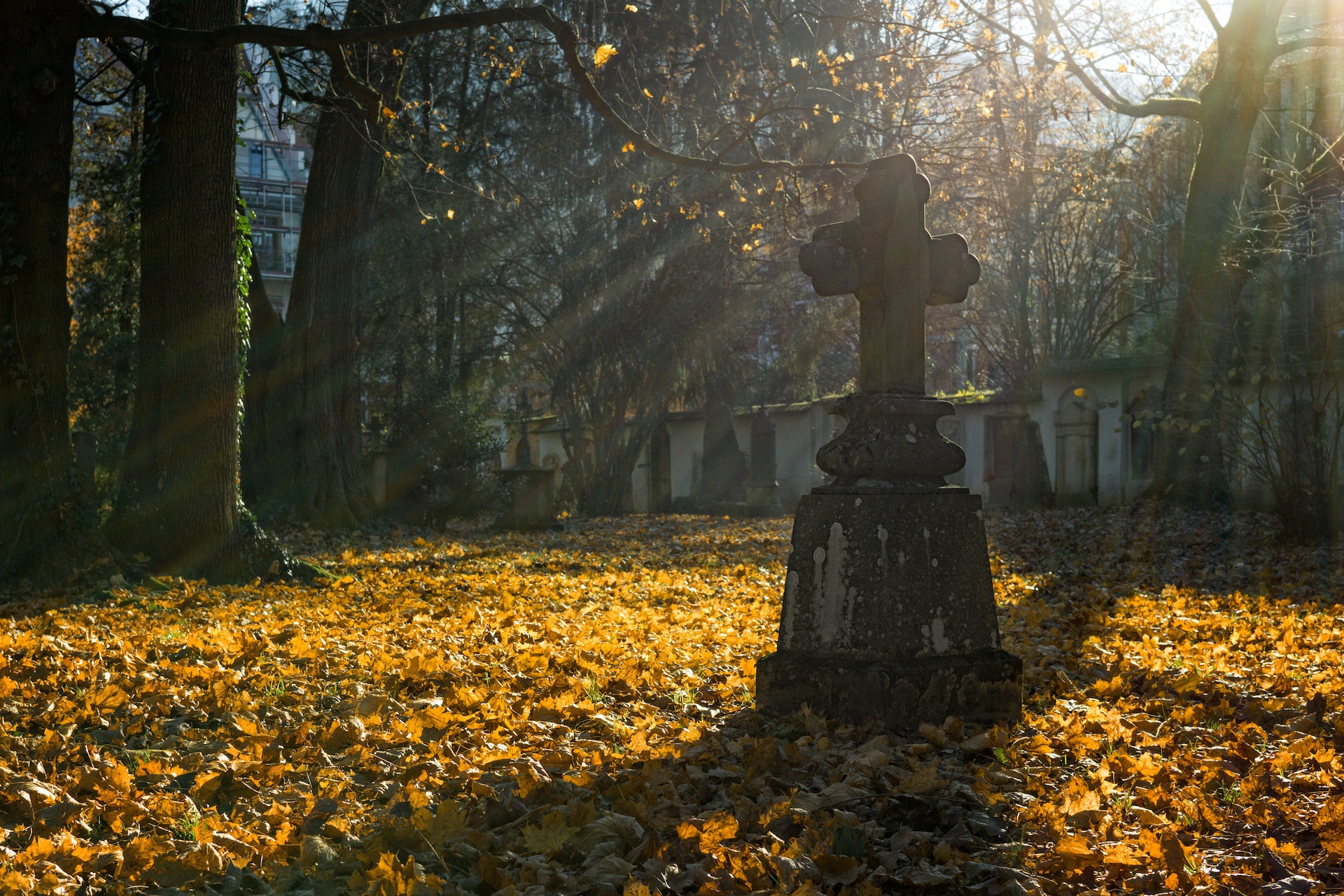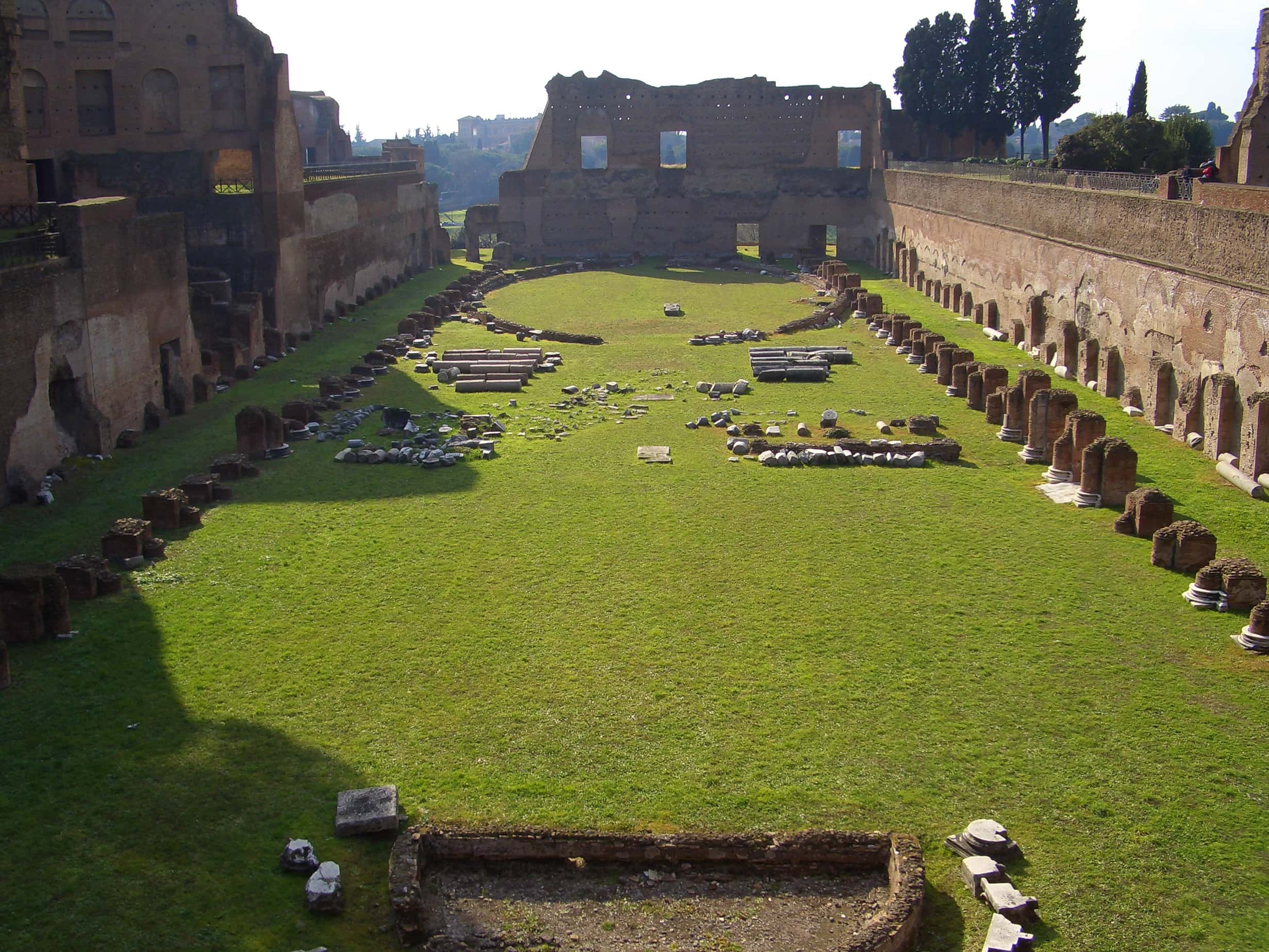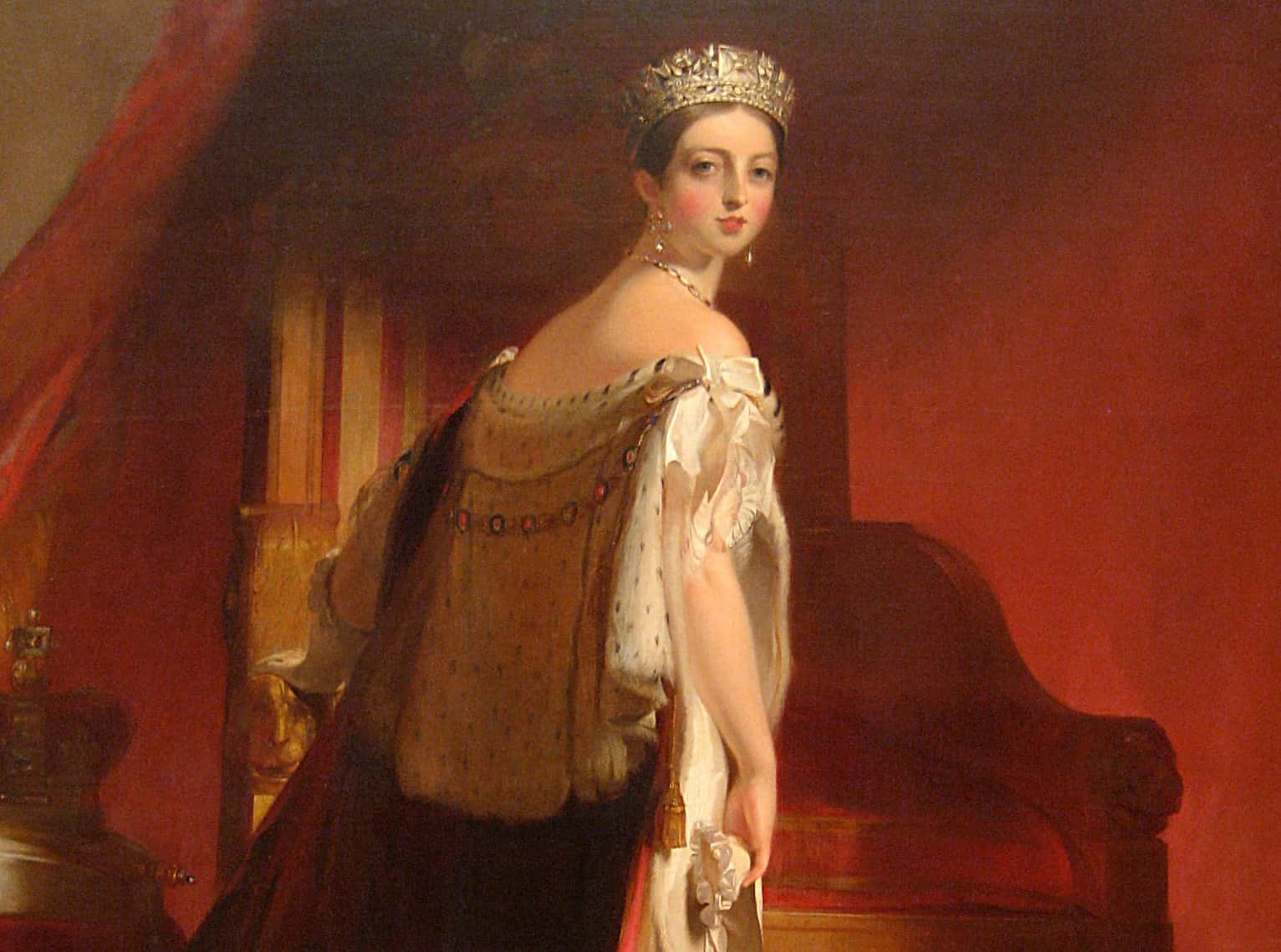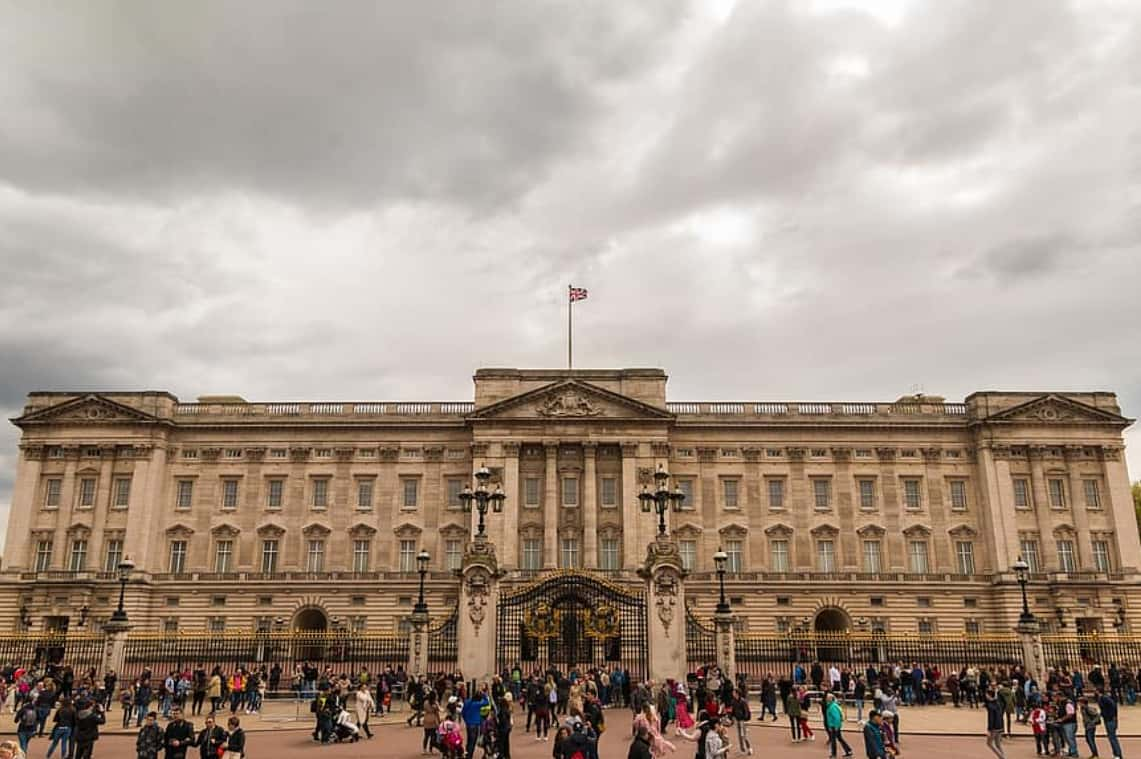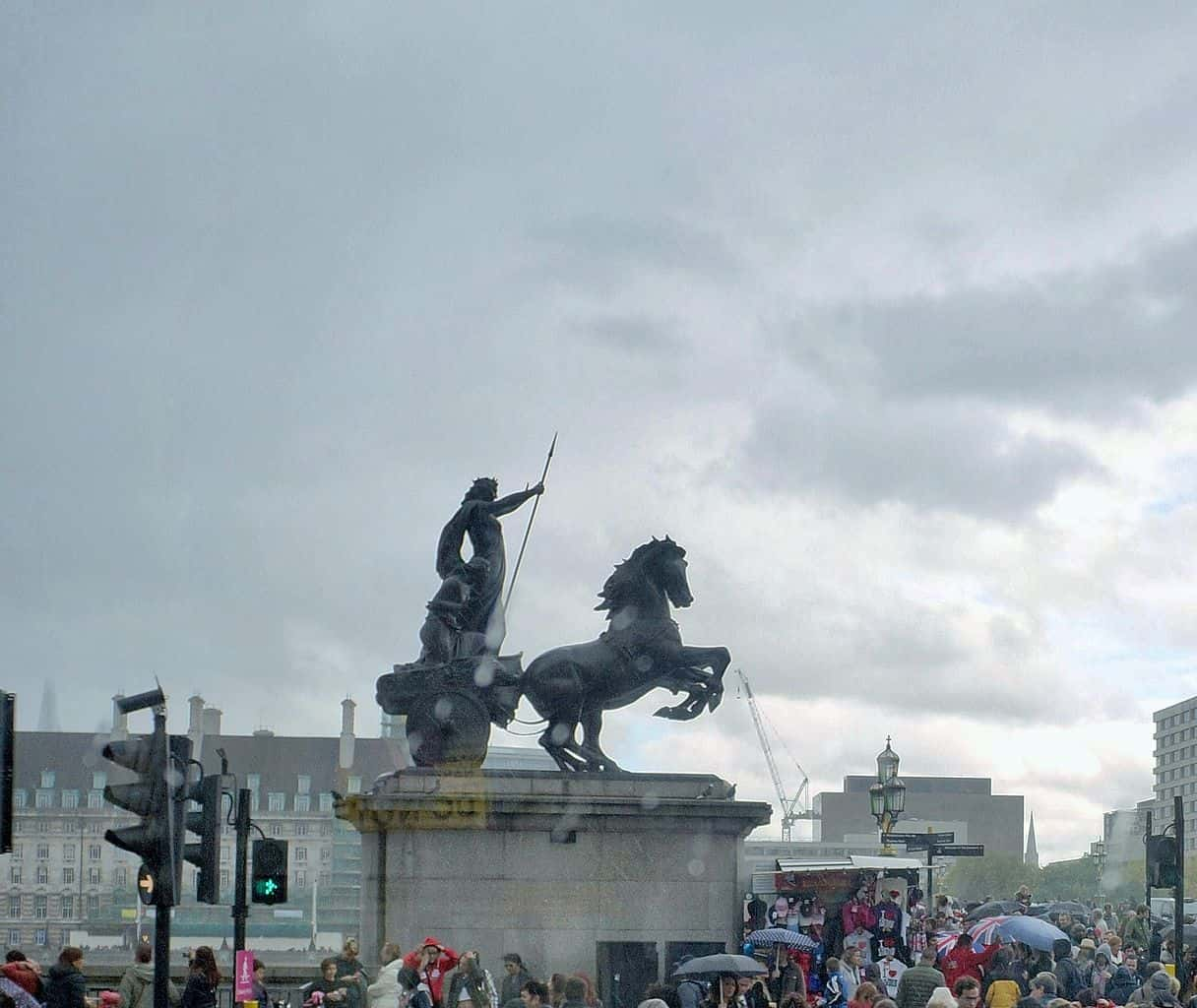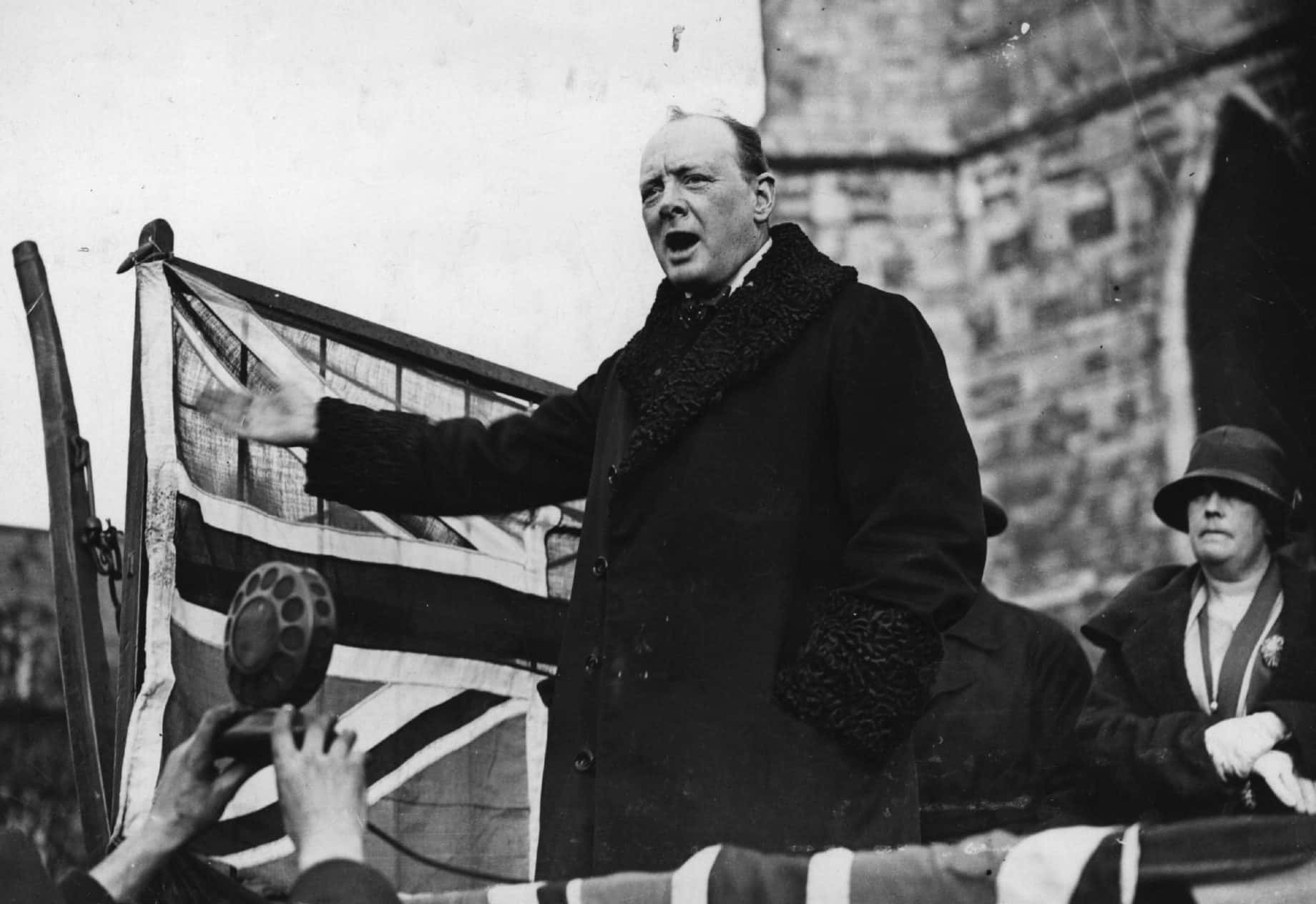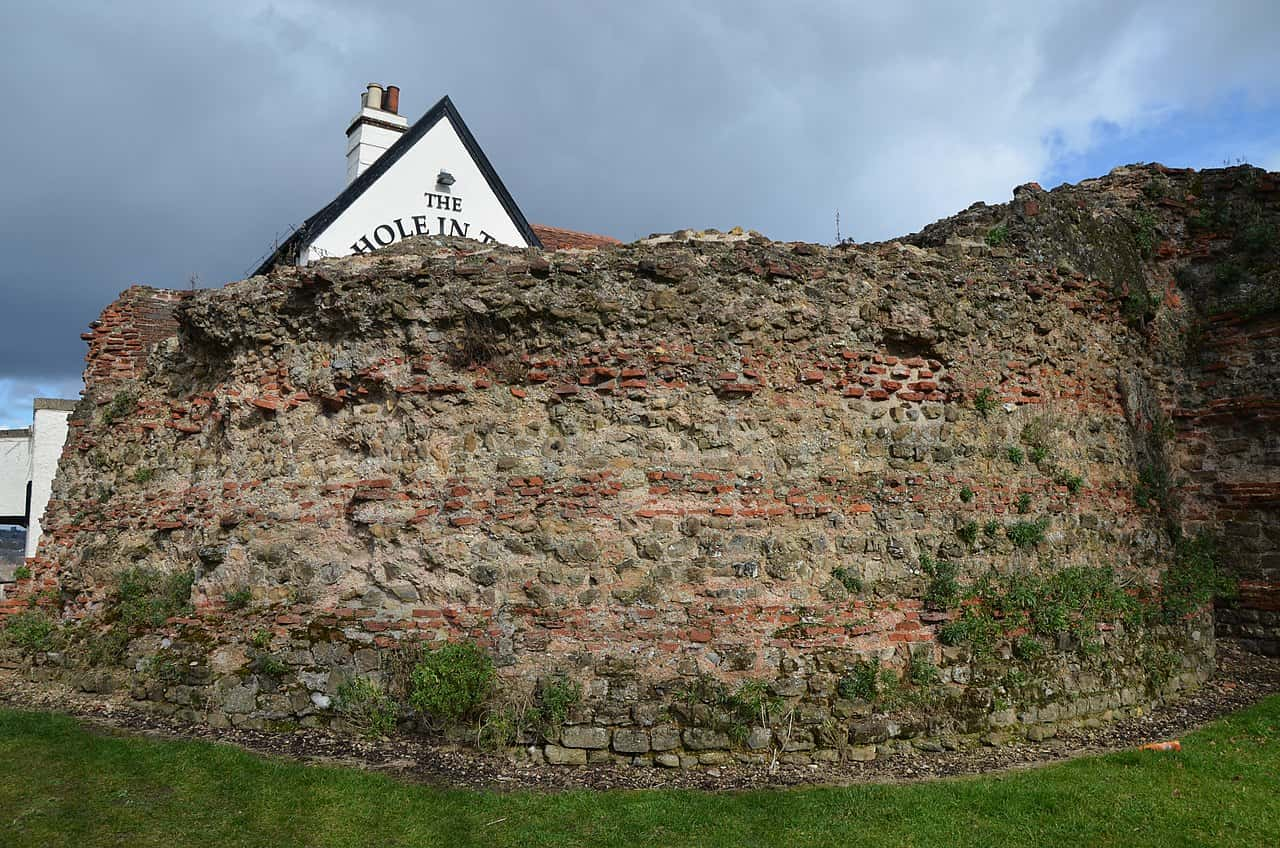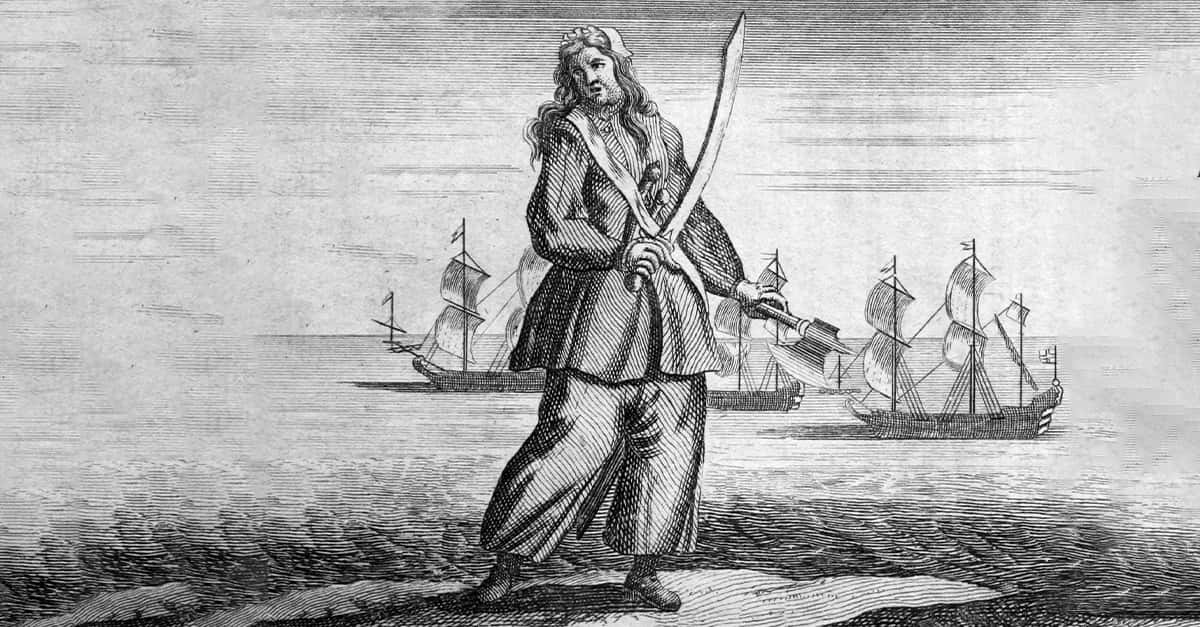The Scourge Of The Romans
When the Roman Empire took her lands and harmed her daughters, the fearless Queen Boudica was not about to let them get away with it. The Celtic warrior led a historic uprising against the Romans in 60 AD, causing catastrophic damage to multiple towns and even burning London to the ground. However, her reign of fury didn't last long. By 61 AD, the Iron Age's ultimate fighter met a perilous end. This is the incredible story of Queen Boudica, the defiant thorn-in-the-side of the Roman Empire.
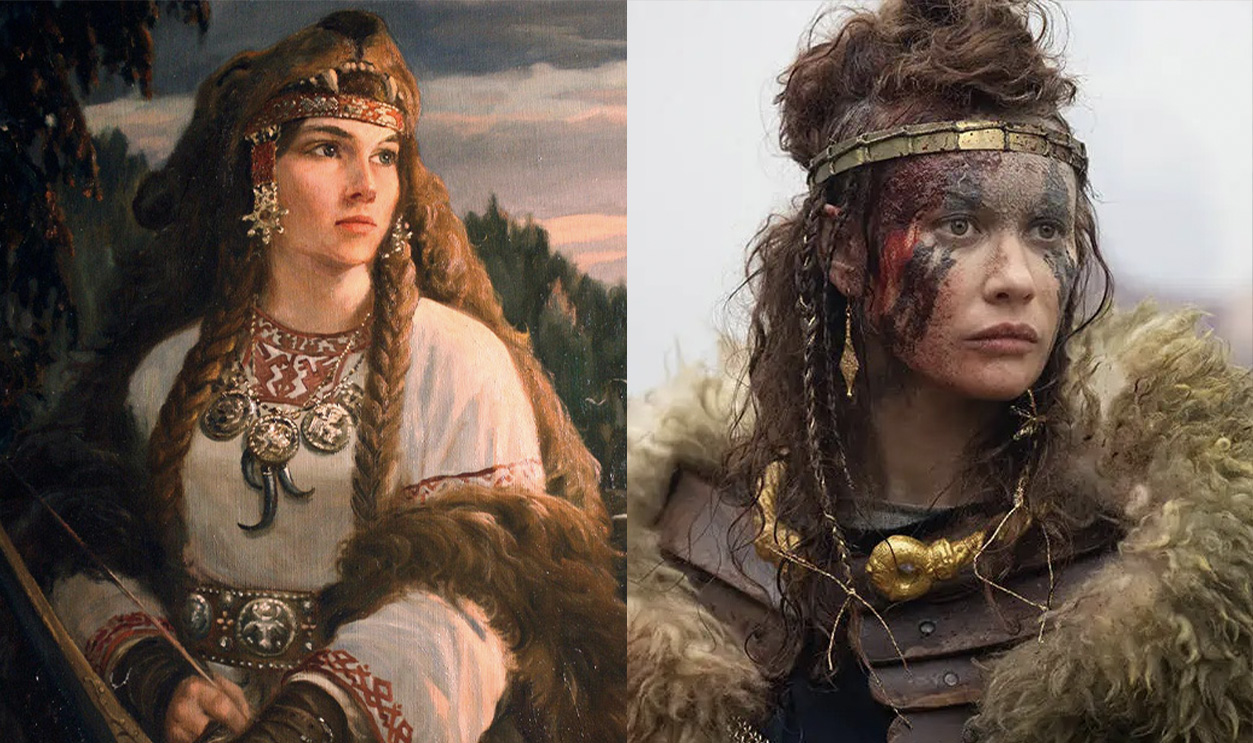
1. Her Name Is Prophetic
Boudica is an ancient Celtic name which is derived from the word “boud,” meaning victory. Historians don't know much about our girl's childhood, but clearly Boudica's parents knew their daughter would make waves.
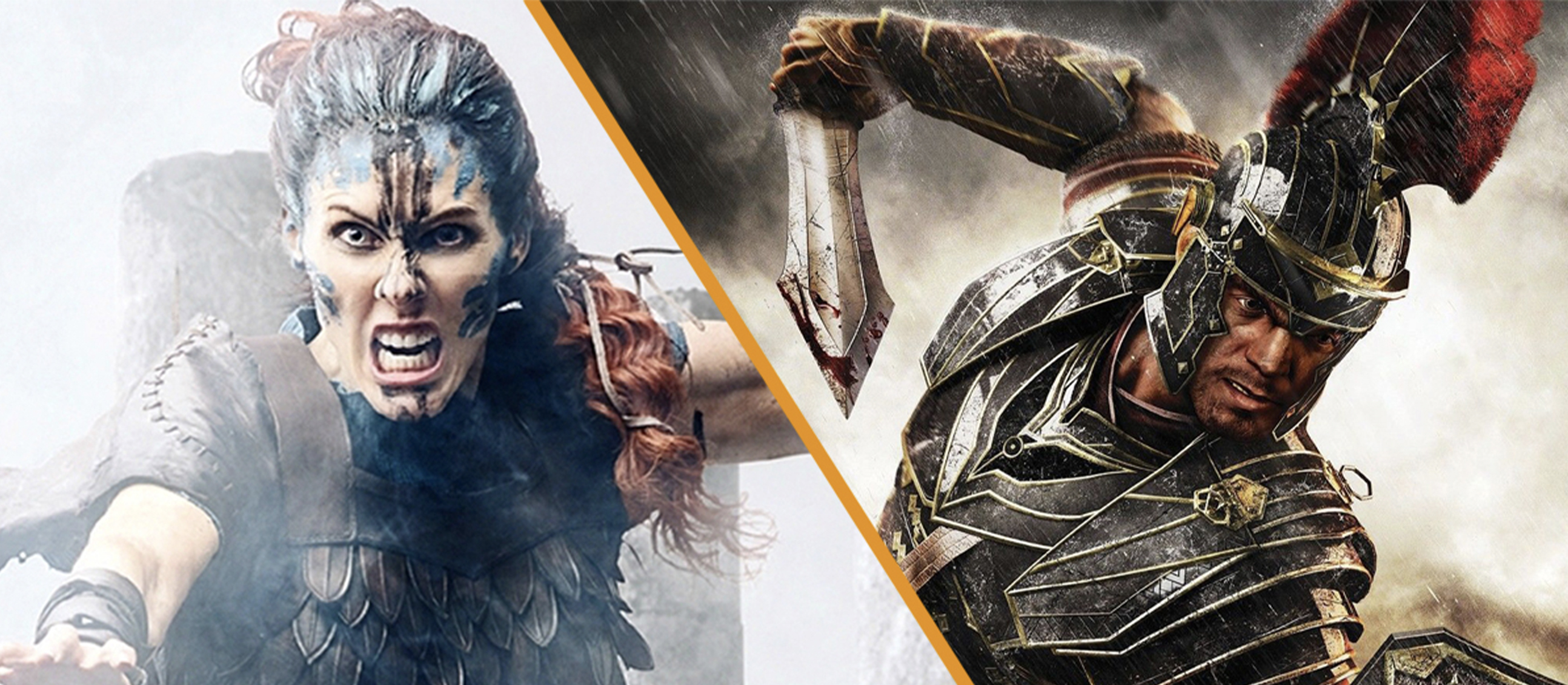
2. Her Early Days Are Mysterious
Even though she's one of the most legendary women in history, we don't know too much about Boudica's early days. Scholars think she was born around 30 AD in Camulodunum (now Colchester). Here's what we know for sure, though: Young Boudica was fancy from day one. She either belonged to a prominent family or had royal blood. And soon, she'd level up even more.
3. Her Society Was Cool
Here's a big reason behind Boudica's rise: Celtic societies were actually cool with women holding power. Ladies could rule, participate in politics, make art, choose who they married and even (gasp!) get divorced. If a foolish husband was dumb enough to harm his bride, by law, she could poison the jerk or even cut his head off. I think I like ancient Britain.
4. She Looked Fierce
Another thing that helped Boudica dominate her foes? Her ferocious looks. Based on ancient sources, Boudica was a pretty terrifying figure. She was a statuesque, tall woman with a “piercing gaze” and a deep, commanding voice. She also had, on a less complimentary note, “greater intelligence than often belongs to women.” Um, thanks?
 Boudica: Rise of the Warrior Queen (2019), Warrior Films
Boudica: Rise of the Warrior Queen (2019), Warrior Films
5. She Had An Iconic Feature
Of all Boudica's physical traits, one is particularly unforgettable: Her incredible hair. With her long, thick, vibrant red hair, Boudica looked like a toughened up version of Merida from Brave. Some sources even say that Boudica's fiery locks went all the way down to her royal waist. In other words, she was a total catch—and soon enough, all the eligible gentlemen came calling.
6. She Married Up
With her high class background and her smokin' hot looks, Boudica was always going to make a good match. But dang, did she ever deliver on the hubby front. When she was 18 years old, Boudica married the King of the Iceni Tribe, the handsome and powerful Prasutagus. The royal couple soon welcomed two daughters, but sadly, their happy days wouldn't last long.
 Warrior Queen (2003), Media Pro Pictures
Warrior Queen (2003), Media Pro Pictures
7. Enemies Invaded
Around 43 CE, the Roman Emperor Claudius started to conquer Britain with an iron fist. The Iceni people, who until this point had been left alone, quickly saw the writing on the wall. They knew it would only be a matter of time before the Romans invaded their lands. Boudica and her husband had to figure out how to handle their new threat—and fast.
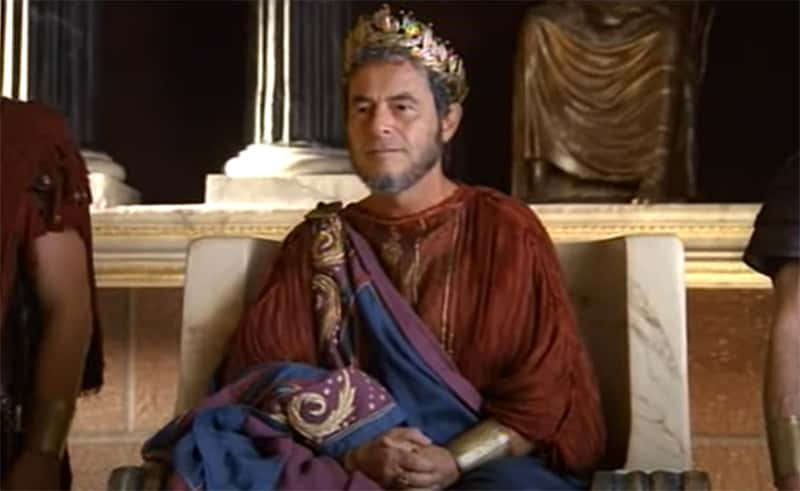 Nero (2004 TV Movie), Rai Fiction
Nero (2004 TV Movie), Rai Fiction
8. She Played It Smart
At first, Boudica and the King decided to play nice with the Romans. They struck a deal: If the Romans let them continue to live the way they liked, the Iceni wouldn't make trouble for Britain's new invaders. For a time, this agreement worked just fine. But after just a few years, everything fell apart in spectacular fashion.
 Warrior Queen (2003), Media Pro Pictures
Warrior Queen (2003), Media Pro Pictures

History's most fascinating stories and darkest secrets, delivered to your inbox daily.
9. Everything Fell Apart
Emperor Nero has a reputation for being a real tool—and his role in Boudica's story doesn't exactly make people see him any differently. When calm Emperor Claudius kicked the bucket and Nero took over the Roman-Celt relations, things got real messy real fast. Under Nero's rule, the Romans went from "awkward but mostly harmless invaders" to "actively aggressive enemies." It didn't take long for the Iceni to reach their breaking point.
10. Her People Were Ticked
Under Nero's rule, a control freak of a Roman Governor named Ostorius Scapula rose to power. In 47 AD, he got the bright idea to forbid the Iceni from carrying weapons unless they were hunting or traveling. Understandably, the Iceni weren't on board with being vulnerable while they were literally surrounded by foreign enemies. That same year, they lashed out with a violent rebellion.
11. They Rose Up
The Iceni Revolt saw Boudica's people rise up and fight against their oppressors, the Romans. It sounds thrilling—and for a brief time, I'm sure it was—but soon enough, the Romans shut the whole thing down. In some versions of Boudica's story, even after defeating the Iceni, the Romans had even more humiliation in store for the royal couple.
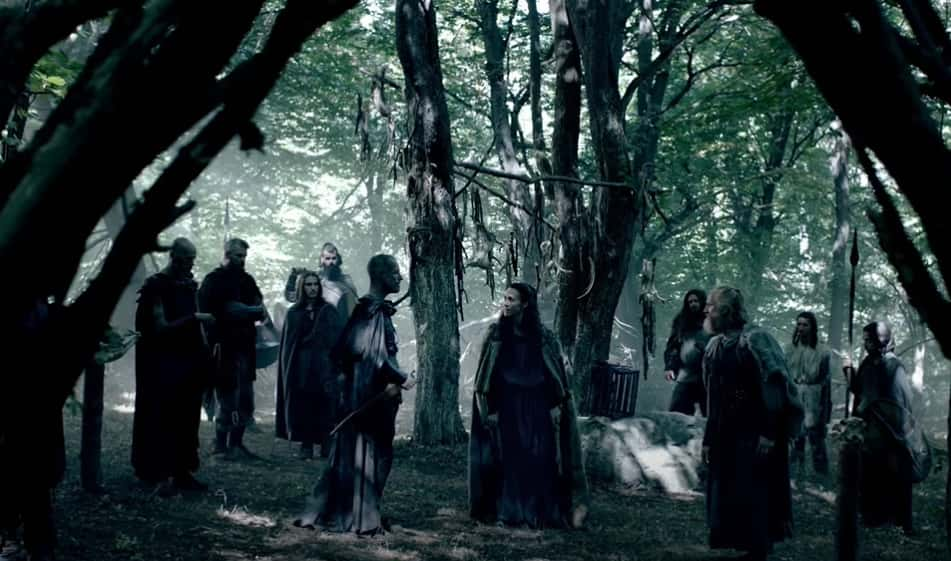 Barbarians Rising (2016– ), History Channel
Barbarians Rising (2016– ), History Channel
12. Her Husband Was Humiliated
According to some sources, this is the moment when Boudica's husband became a "client king" (basically, a powerless lackey) for the Romans. Evidently, they didn't like that his people had tried to revolt, so they punished the Iceni King with a huge demotion. While he had some independence as King, Rome fully expected to take over completely when Prastugas passed. Little did they know, that day was just around the corner.
 Warrior Queen (2003), Media Pro Pictures
Warrior Queen (2003), Media Pro Pictures
13. She Lost Her Love
In 60 AD, King Prasutagus breathed his last—and man oh man, with him gone, all chaos broke loose. You see, when the King passed, he and Boudica had two daughters, but no sons. The Celts wouldn't have minded, but the Romans? They had a big problem with powerful women. Desperate, the King attempted to outsmart the Romans with a finicky clause in his will. Let's see how that works out, shall we?
14. The Will Was A Mess
Boudica's hubby attempted to play politics and win protection for his family. He cleverly willed half of his wealth to his daughters and, in a pristine example of historical sucking up, gave the other half to Emperor Nero. Unfortunately, this backfired in a major way. The Romans decided they didn't want half of the King's money. They wanted it all.
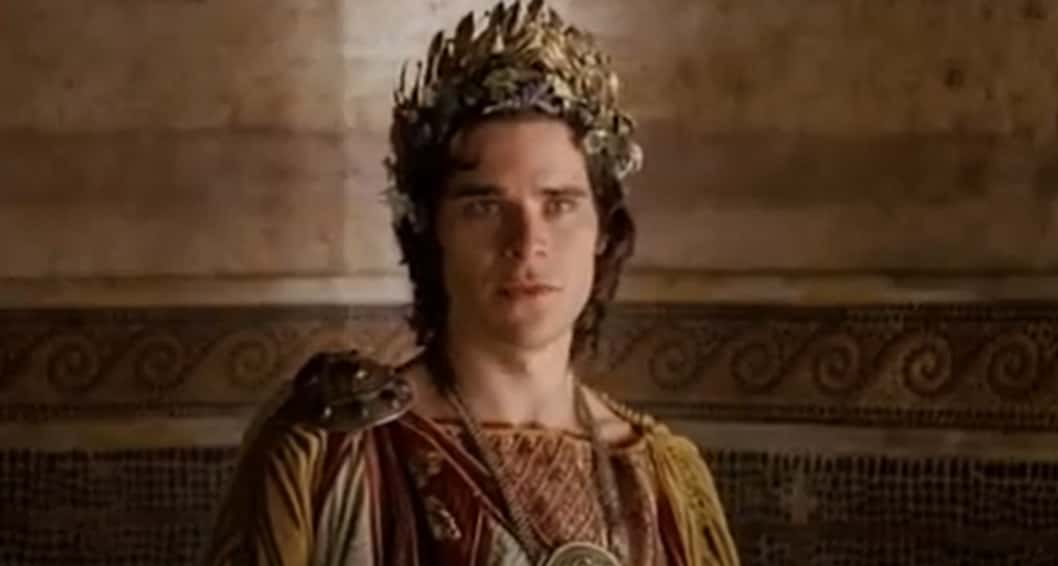 Nero (2004 TV Movie), Rai Fiction
Nero (2004 TV Movie), Rai Fiction
15. The Romans Lashed Out
As Boudica and her daughters grieved, the Romans used the Iceni King's demise as an excuse to take over the tribal lands and show the Iceni who was boss. According to one source, the Romans' chilling instructions were to “bring the territory to its knees." The Romans immediately began their brutal spree, kicking off the shebang by running through Boudica's home and looting all her valuable items. And that was just the beginning.
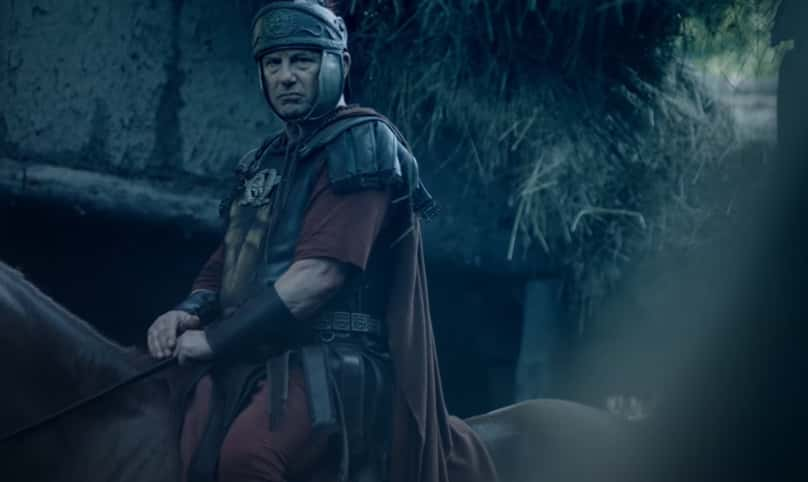 Barbarians Rising (2016– ), History Channel
Barbarians Rising (2016– ), History Channel
16. Her People Were Targeted
The Romans continued to run wild through the Iceni lands. They targeted the tribe's most prominent noblemen, publicly declaring that they no longer held any power. As for the less fortunate, one source says the Romans forced them into slavery. But they saved their worst punishments for Boudica and her daughters.
 Barbarians Rising (2016– ), History Channel
Barbarians Rising (2016– ), History Channel
17. They Took Her Things
Though Celtic law stated that Boudica would rule the Iceni when her husband passed, the Romans couldn't care less. After helping themselves to her most prized possessions, the Romans ended their tour by shoving the queen out of her home, ripping off her clothing, tying her to a pole, and viciously whipping her in front of her subjects.
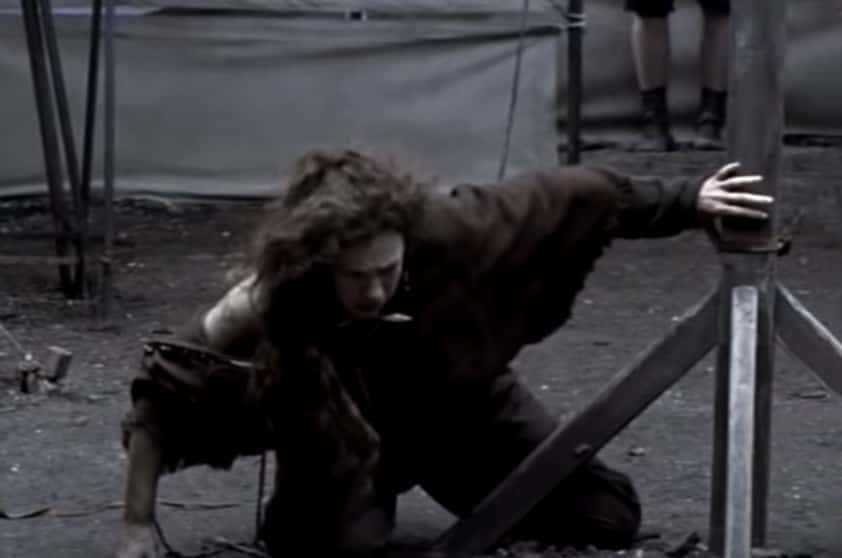 Warrior Queen (2003), Media Pro Pictures
Warrior Queen (2003), Media Pro Pictures
18. They Punished Her
Have you seen Mel Gibson's movie about the crucifixion? Imagine that whipping scene. Boudica suffered an unimaginably painful fate. After all, the Romans were known for their next-level punishments. They added stones to the ends of their whips so that their victim would be hurt even more. Oh, and unfortunately for Boudica, that's not all.
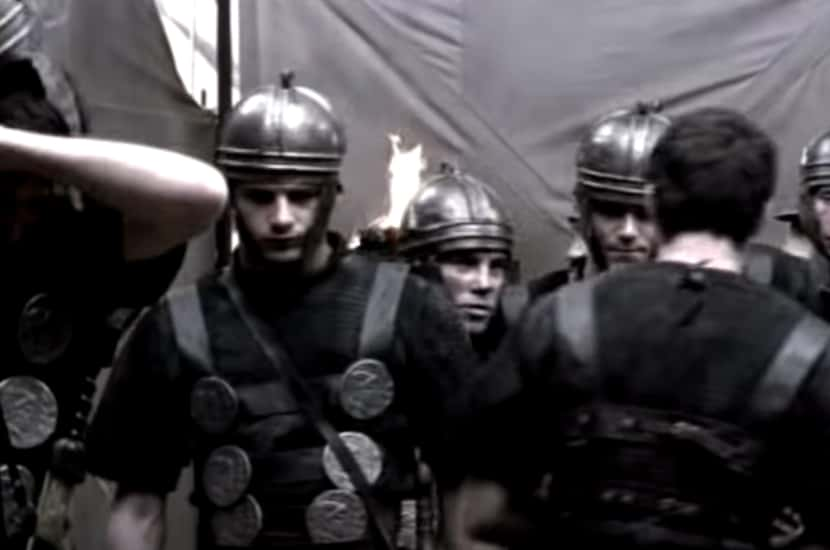 Warrior Queen (2003), Media Pro Pictures
Warrior Queen (2003), Media Pro Pictures
19. She Was Lucky To Survive
The Romans didn't believe in the "less is more" school of thought. While other ancient societies would call it a day after 40 lashes, the Romans were happy to up that number to 100. As a sign of their brutality, Romans often whipped their victims right before ending their life. That's how intense this public punishment would have been. And the Romans weren't even done.
 Warrior Queen (2003), Media Pro Pictures
Warrior Queen (2003), Media Pro Pictures
20. They Went Too Far
Boudica's public humiliation went way beyond the pale. You see, to the Iceni people, Boudica wasn't just a queen. According to one source, her people also thought of her as a high priestess or even the living incarnation of the goddess Andraste. Because of this, the Romans' actions weren't just cruel—they were sacrilege.
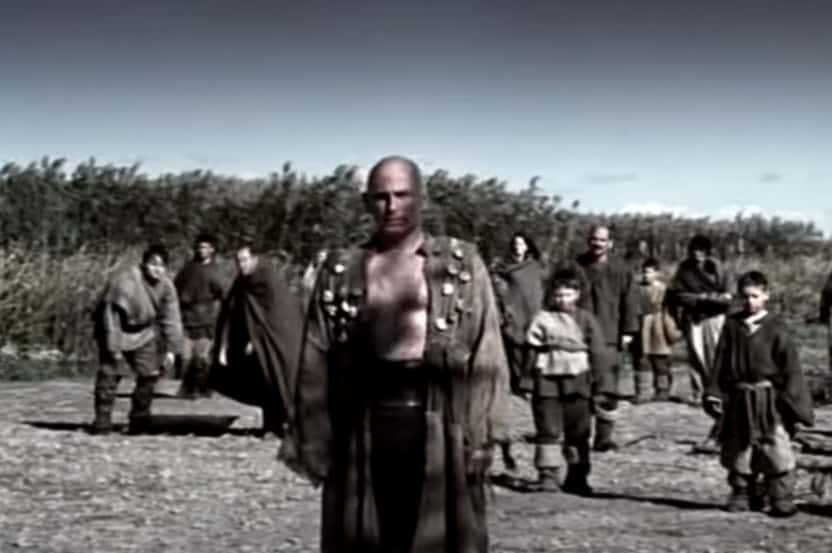 Warrior Queen (2003), Media Pro Pictures
Warrior Queen (2003), Media Pro Pictures
21. Her Daughters Were Traumatized
Even after Boudica's whipping, the Romans weren't done with the royal family. In their absolute worst act, the men took Boudica's daughters and violated them. One source estimates that the two young girls, whose names are unknown to this day, were just eight and ten years old at the time of the Romans' merciless attacks.
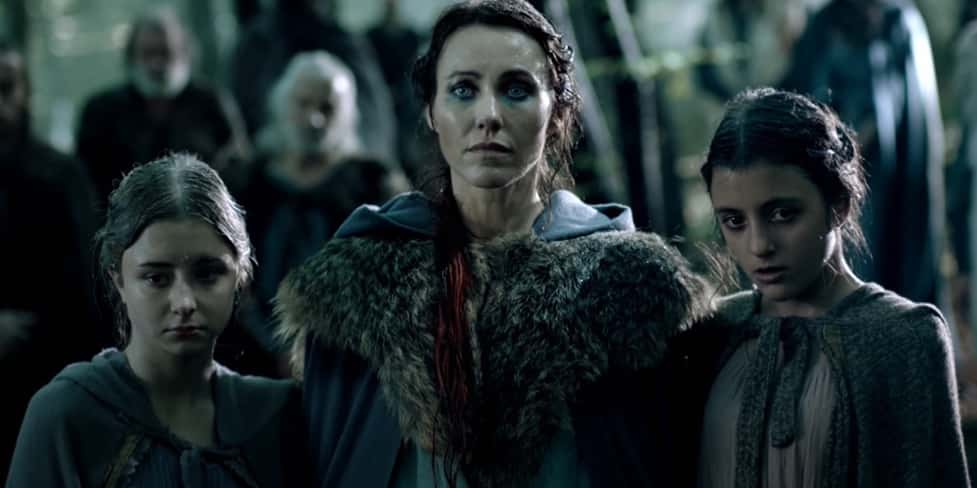 Barbarians Rising (2016– ), History Channel
Barbarians Rising (2016– ), History Channel
22. She Had Vicious Enemies
Despite their heinous treatment, Boudica's daughters could have had it a lot worse. Back in Rome, if a nobleman's daughters stepped out of line, they could be thrown off a cliff, among other things. So...yeah.
23. She Felt Betrayed
The way the Romans treated Boudica was completely shudder-inducing, but it hurt Boudica more than it would have harmed someone else. After all, Queen Boudica and her deceased husband had, for the most part, played by the Romans' rules. To them, they were allies, not enemies, which must have made the Romans' cold-blooded betrayal even worse.
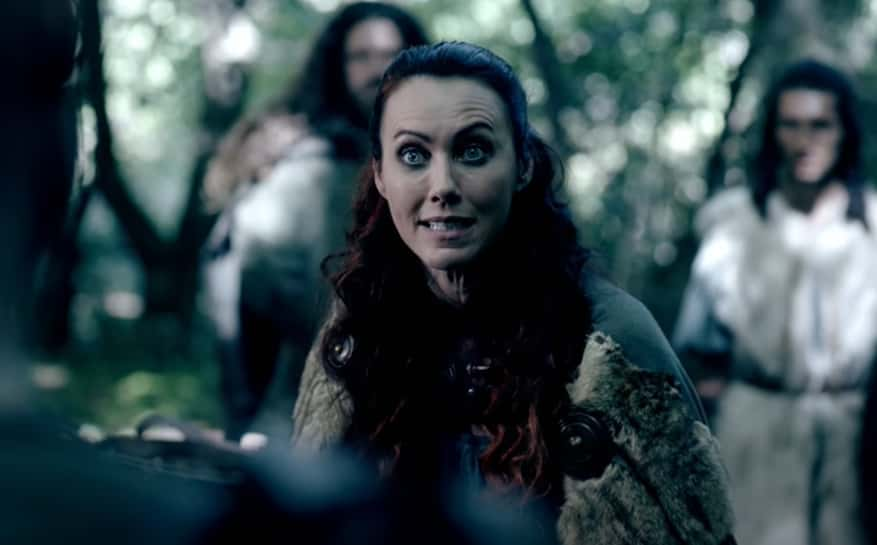 Barbarians Rising (2016– ), History Channel
Barbarians Rising (2016– ), History Channel
24. They Hated Her
So why did the Romans go all scorched-earth on their relationship with Boudica and the Iceni? Let's call a spade a spade: It was, in part, because of good old sexism. The Celts were down with the idea of a lady in power, while the Romans were...not. Some historians believe that the Romans went so berserk on Boudica because they hated the idea that they'd have to work with a "Barbarian" woman.
 Barbarians Rising (2016– ), History Channel
Barbarians Rising (2016– ), History Channel
25. They Played Dirty
The Romans also played dirty. During Boudica's husband's reign, the Romans gave the Iceni some free money in the form of a grant. But then, a Procurator conveniently decided that actually, the "grant" was more of a loan. They used this handy rewriting of history as an excuse to steal from the Iceni nobles. Not cool, Romans.
 Warrior Queen (2003), Media Pro Pictures
Warrior Queen (2003), Media Pro Pictures
26. She Plotted Her Revenge
The Romans had another, far more relatable reason. It was simple: location, location, location. The Roman empire bordered the west, with water surrounding the north and east, and everything else covered in thick forest. To the Romans' joy, this made invasion nearly impossible. There was just one problem with this plan: The Romans didn't have to worry about invaders—just like in a horror movie, the call was coming from inside the house.
Boudica began plotting her revenge.
 Barbarians Rising (2016– ), History Channel
Barbarians Rising (2016– ), History Channel
27. She Gathered Her Allies
Boudica didn’t waste any time planning her revolution. It just so happened that the Iceni weren’t the only tribe who had a beef with the Romans. The Trinovanti, Cornovii, and Durotiges, to name a few, also hated the heavy taxes, religious suppression, and low-key land theft. They were more than happy to rise up against the Roman empire.
 Barbarians Rising (2016– ), History Channel
Barbarians Rising (2016– ), History Channel
28. She Led The Charge
Boudica could rile up a crowd like no one else. By the time she was done travelling around the neighboring tribes, the fearless had managed to raise an astonishing 100,000 men to join the fight. As the cherry on top of her bloodthirsty revenge cake, Boudica's allies soon gathered to select their leader. Who do you think they chose? Of course, the lucky lady was Boudica herself.
With her allies secured, there was just one thing left to do: Kick some Roman butt.
 Barbarians Rising (2016– ), History Channel
Barbarians Rising (2016– ), History Channel
29. She Gave One Heck Of A Speech
Before leading her forces into battle, Boudica reportedly gave a rousing speech worthy of Braveheart. She assembled her fighters and declared, “I’m not fighting for my kingdom and wealth. I am fighting as an ordinary person for my lost freedom... Consider how many of you are fighting—and why. Then you will win this battle, or perish."
She finished off her speech with this incredible line: "That is what I, a woman, plan to do! Let the men live in slavery if they will." Tell 'em, Boudica!
 Barbarians Rising (2016– ), History Channel
Barbarians Rising (2016– ), History Channel
30. She Had Famous Fans
Boudica had fans in high places. Some historians believe that Queen Elizabeth I's famous speech at Tilbury was inspired by Boudica's own "Go forth and kick butt" address back in the Iron Age.
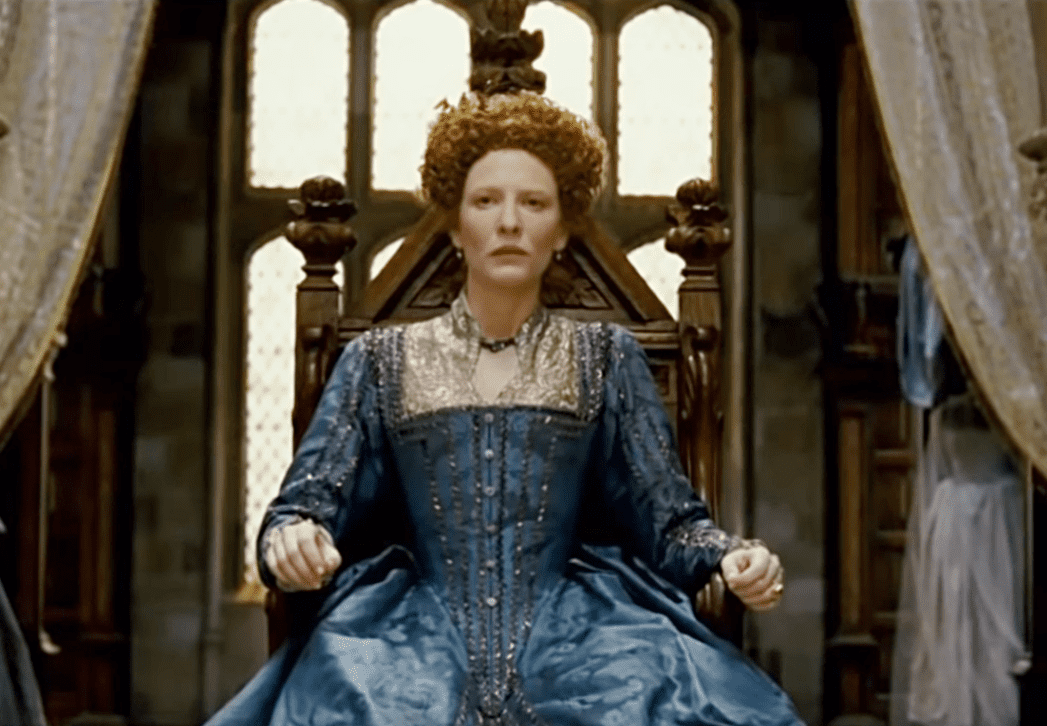 Elizabeth: The Golden Age (2007), Universal Pictures
Elizabeth: The Golden Age (2007), Universal Pictures
31. She Hit Them Where It Hurt
And so, with Boudica's own version of the Avengers assembled, she set her sights on the ultimate target: the settlement of Camulodunum. This was no ordinary city. Camulodunum was the capital city of Roman Britain. Heck, back in 43 AD, it was where Emperor Claudius literally brought the ancient British kings to their knees. By attacking Camulodunum, Boudica was sending a message: She was coming for the Romans—and she was not going to back down.
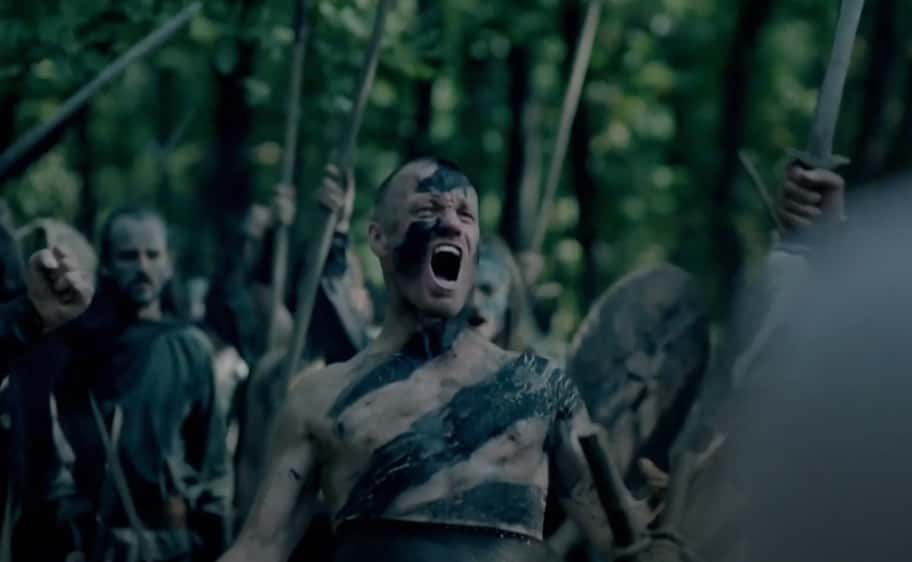 Barbarians Rising (2016– ), History Channel
Barbarians Rising (2016– ), History Channel
32. She Burned It Down
When Boudica and her squad arrived at Camulodunum, they knew exactly what to destroy first. They immediately headed to the Temple of Claudius, an expensive building that honored Emperor Claudius's domination of the British kings. As a sign of how much they hated the Romans, Boudica ordered her men to burn the entire building down.
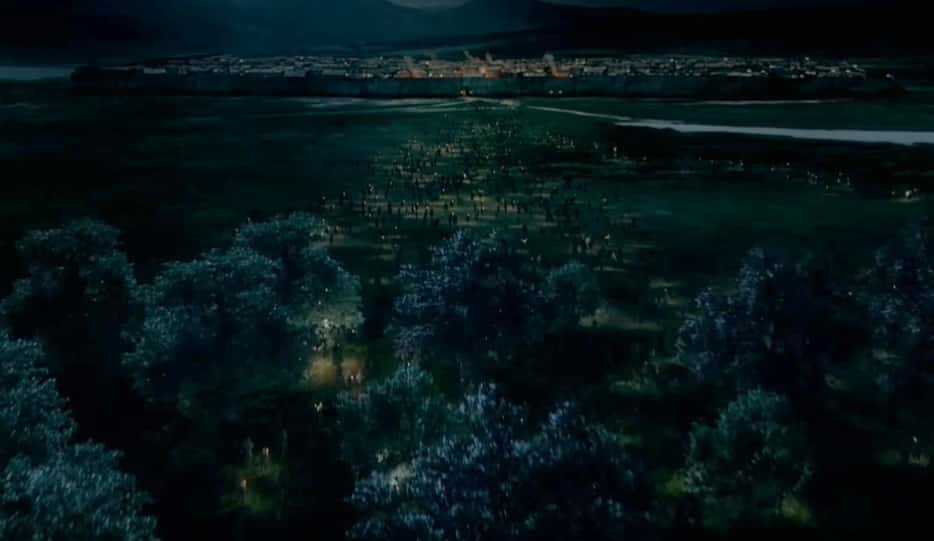 Barbarians Rising (2016– ), History Channel
Barbarians Rising (2016– ), History Channel
33. She Vented Her Anger
Boudica wasn't content with just destroying a building. When she found a bronze statue of Claudius, she knew that mere destruction wouldn't do. Instead of smashing the statue into smithereens, Boudica used it to send a chilling message. She ordered her men to cut the head off the statue. Message received: This lady is out for blood.
 Barbarians Rising (2016– ), History Channel
Barbarians Rising (2016– ), History Channel
34. She Had A Dark Side
Boudica triumphed at Camulodunum partially because she was angry as heck, but also because the Romans messed up. They didn't defend the city adequately—and Boudica certainly took advantage of their failure. Within just two days, Boudica burned the city down and slaughtered thousands of Romans. If they didn't perish in the fray, they burned alive. Yikes.
 Barbarians Rising (2016– ), History Channel
Barbarians Rising (2016– ), History Channel
35. It Had A Dope Name
To this day, Boudica's attack on Camulodunum goes by an appropriately terrifying name. It's called the Massacre of the Ninth Legion.
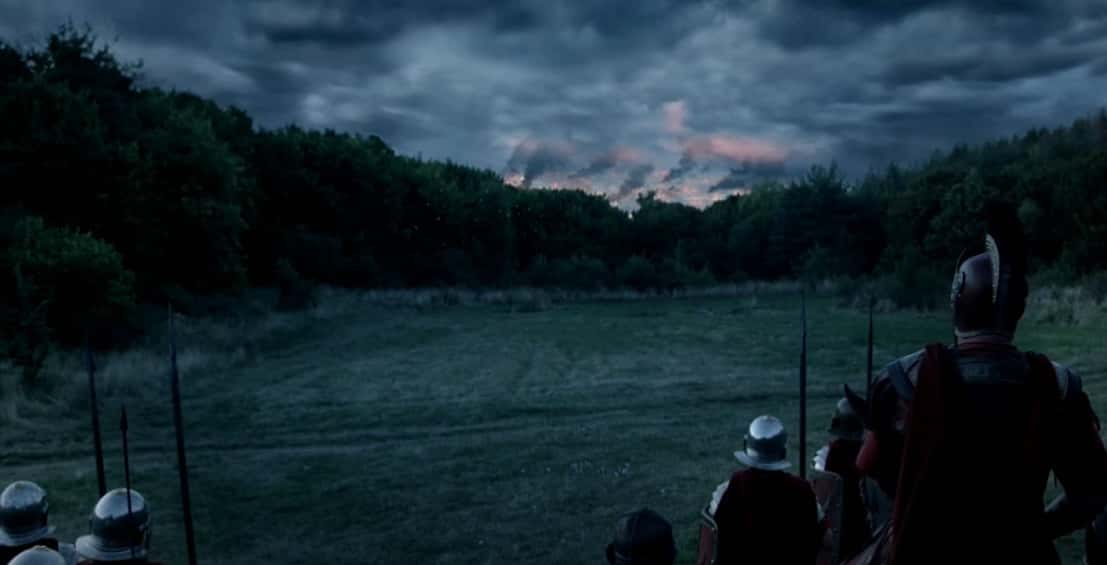 Barbarians Rising (2016– ), History Channel
Barbarians Rising (2016– ), History Channel
36. She Was Merciless
Look, no one's saying Boudica wasn't right to be angry at the Romans. But at the same time, we have to admit that she kinda went overboard. When she sacked Camulodunum, Boudica didn't differentiate between good Romans and bad Romans. She just destroyed whoever was in her way, including lots and lots of innocent bystanders. And that's not all.
 Barbarians Rising (2016– ), History Channel
Barbarians Rising (2016– ), History Channel
37. Her Victims Suffered
According to ancient sources who wrote about Boudica's raids, our girl really went hard on the whole vengeance thing. Her preferred execution method involved, ahem, detaching her enemies' heads from their bodies. Boudica would then hold up the bloody head and declare that it was a sacrifice to her favorite goddess, Andraste. Sounds...intense.
 Barbarians Rising (2016– ), History Channel
Barbarians Rising (2016– ), History Channel
38. Her Vengeance Couldn't Be Sated
Boudica's raid on Camulodunum was so extreme that the rivers were, and I quote, "purpled with blood."
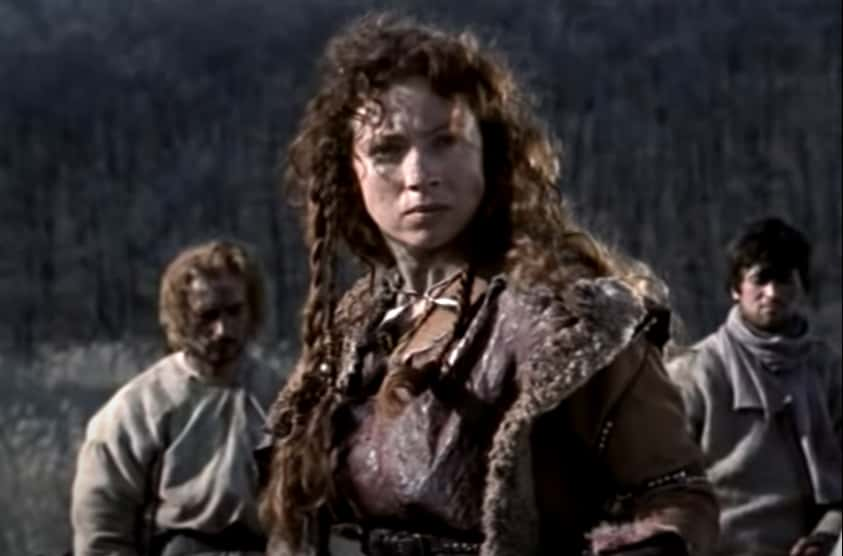 Warrior Queen (2003), Media Pro Pictures
Warrior Queen (2003), Media Pro Pictures
39. She Refused To Stop
After her victory at Camulodunum, Boudica continued her destructive spree. She traveled to the city of Londinium (unsurprisingly, what is now modern day London) and took her bloodlust to a WHOLE 'nother level. An ancient account says that Boudica hung up the noblewomen like animals. When she was done with this crude scene, she supposedly skewered them like meat on a stick. Too far, Boudica.
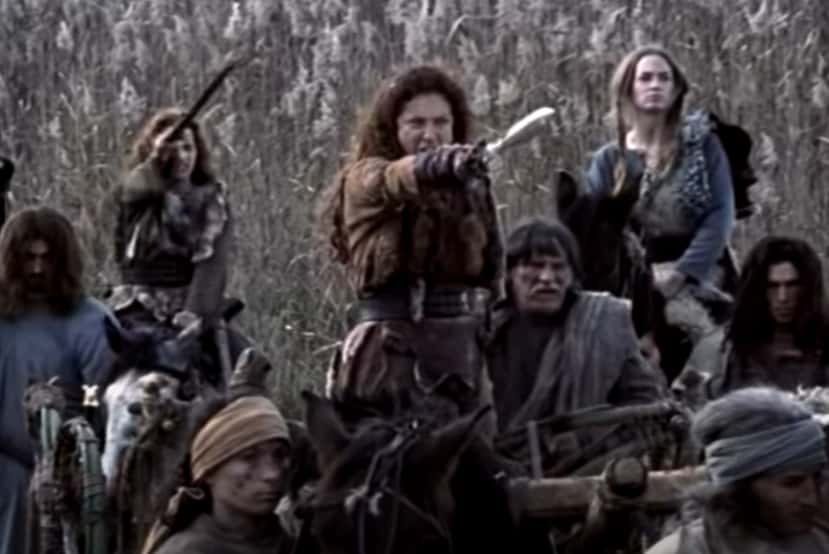 Warrior Queen (2003), Media Pro Pictures
Warrior Queen (2003), Media Pro Pictures
40. An Enemy Outwitted Her
Fire and gross boob-related executions weren't the only ways that Boudica tried to triumph over the Romans. One of Boudica’s strategies was to take what she thought were abandoned Roman food stores and use them for her own men. However, for once, this plan did not go well. The Roman general Suetonius anticipated Boudica's move and burned down his own storehouses just so that Boudica's army would starve.
 Warrior Queen (2003), Media Pro Pictures
Warrior Queen (2003), Media Pro Pictures
41. She Triumphed
Despite this minor setback, Boudica was unstoppable. After conquering Londinium, Boudica travelled to Verulamium (modern day St. Albans) and continued her fiery road trip. Just like her other sieges, there simply weren't enough Romans to defend Verulamium. Boudica’s troops triumphed yet again—but this victory had a dark side.
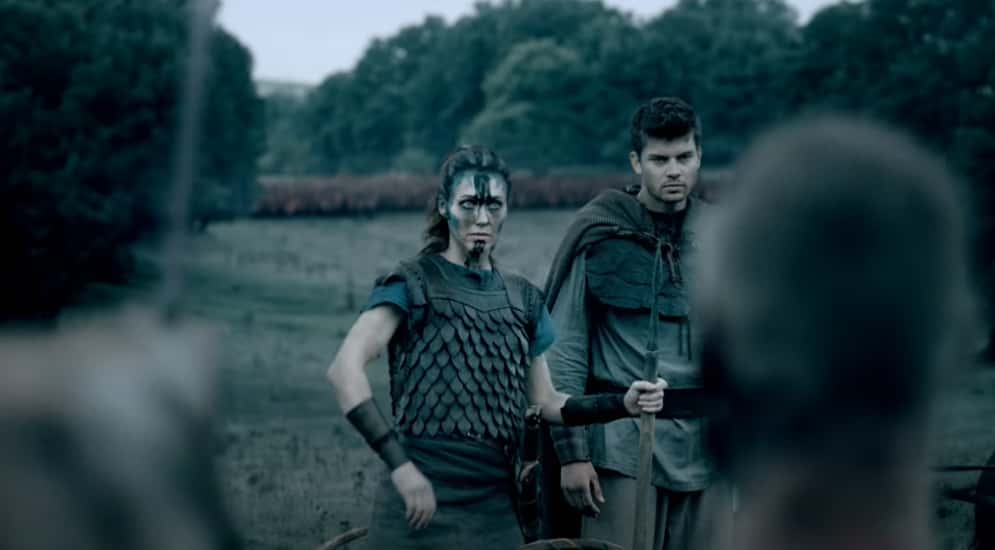 Barbarians Rising (2016– ), History Channel
Barbarians Rising (2016– ), History Channel
42. She Was Vicious
Altogether, Boudica and her forces ended the lives of about 70-80,000 Romans—and these weren't just soldiers. This number included a staggering amount of innocent civilians.
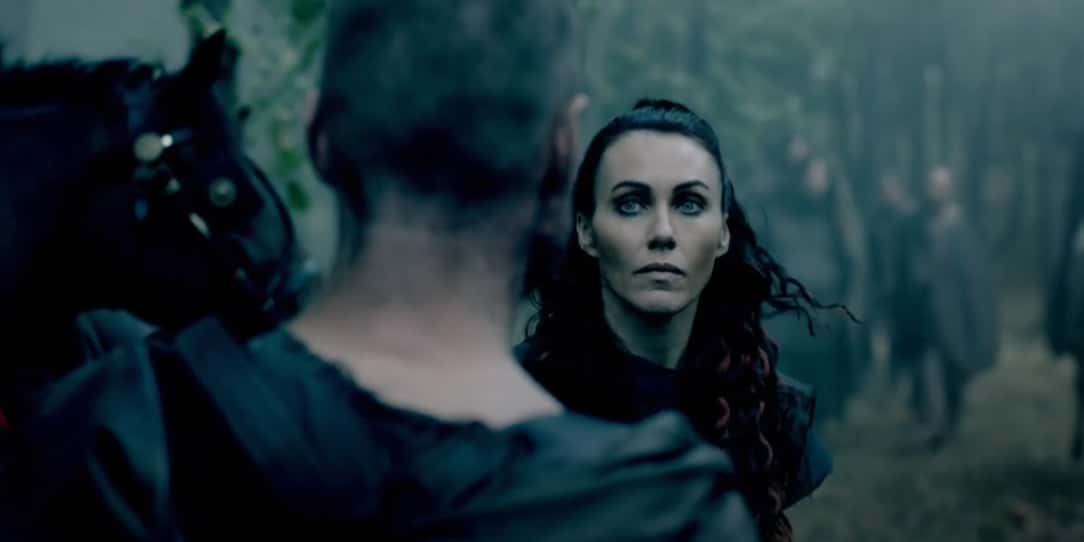 Barbarians Rising (2016– ), History Channel
Barbarians Rising (2016– ), History Channel
43. She Defied Convention
Boudica never shied away from owning her power. Ancient Celtic warrior chieftains of her time wore a piece of jewelry known as torque around their necks. The metal necklace was usually worn by men—but that didn't stop Boudica. According to contemporary descriptions of the warrior queen, Boudica proudly wore her own torque. Now that's what I call power dressing.
 Barbarians Rising (2016– ), History Channel
Barbarians Rising (2016– ), History Channel
44. She Asked For Help
Most of Boudica's battle strategies were sadistic, but some of them were just plain weird. During the battles at Londinium and Verulamium, Boudica prayed to Andraste, the goddess of victory. Warriors often summoned her, requesting her strength and guidance—but Boudica's method of asking for Andraste's help was odd, to say the least.
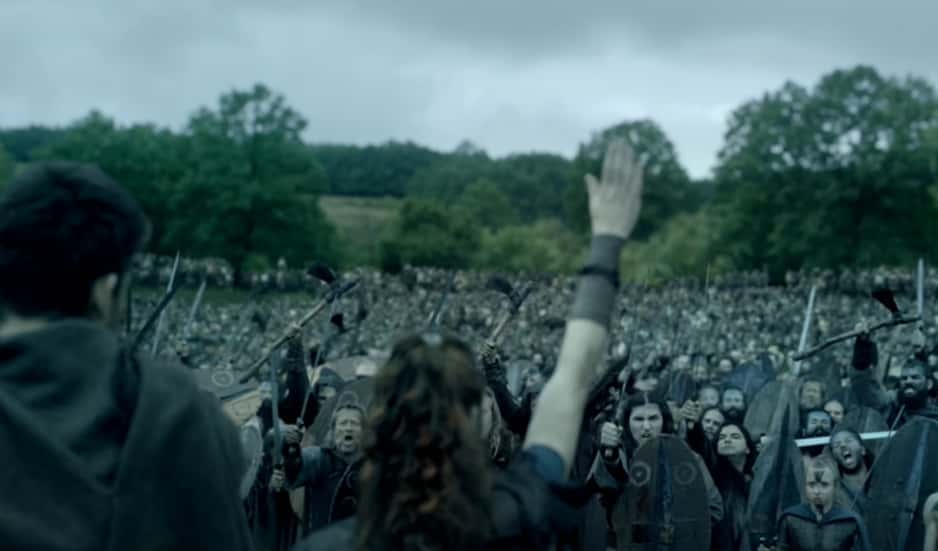 Barbarians Rising (2016– ), History Channel
Barbarians Rising (2016– ), History Channel
45. She Did Some Weird Stuff
Hunting hares was a big no-no in ancient Britain, as people believed that doing so would turn the hunter into a chicken. Yeah, the Iron Age was weird. Anyway, Boudica allegedly invoked the spirit of Andraste by releasing a hare from the folds of her skirt before battle. In doing so, she hoped that the Romans would kill the hare and be struck with a bout of cowardice.
Apparently, this wacko strategy worked at Londinium and Verulamium. Unfortunately for the Celts, when they asked for Andraste's help the third time, they didn’t get their wish.
46. She Fought For Her Life
After destroying three of the Romans' most prized settlements, Boudica and her forces felt unstoppable. In 61 AD, the warrior queen prepared for one final, decisive confrontation. If she won this battle, she would finally defeat the Romans and bring Britain back under Celtic control. In other words, this was the big one. So it's a shame that, after all Boudica's blood, sweat, and tears, it devolved into a horrific disaster.
 Barbarians Rising (2016– ), History Channel
Barbarians Rising (2016– ), History Channel
47. Her Last Stand Is Cloaked In Mystery
To this day, historians aren't completely sure about where Boudica's final stand-off against the Romans took place. The event is called "The Battle of Watling Street" though many believe her final stand occurred at Battle Bridge Road in Kings Cross, London. Either way, no matter where it happened, we can all guess what Boudica did once she assembled her forces: Rally them with one of her signature speeches.
 Barbarians Rising (2016– ), History Channel
Barbarians Rising (2016– ), History Channel
48. She Pumped Up The Crowd
According to the ancient historian Tacitus, when Boudica rallied her men at Watling Street, she did so with even more panache than ever before. As Boudica revealed the scars from her scourging, she and her daughters circled the field in their chariot. They triumphantly declared, "On this spot we must either conquer, or die with glory. There is no alternative." Spoiler: Boudica was right, but not in the way she wanted.
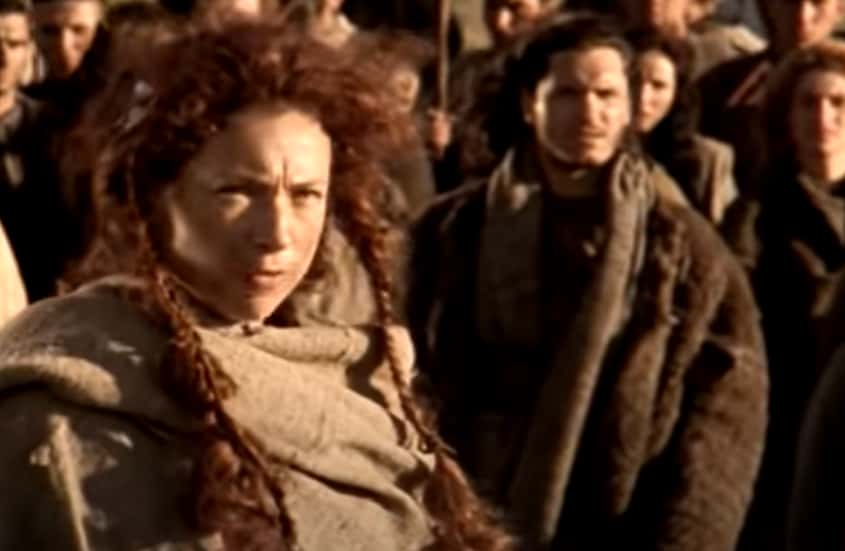 Warrior Queen (2003), Media Pro Pictures
Warrior Queen (2003), Media Pro Pictures
49. Her Fighters Had Style
Celtic warriors were tall and muscular, standing at least a head above their Roman enemies. This alone would have made them look pretty imposing, but they also loved grandstanding. The Celts would often paint themselves with a blue dye to look even scarier. As we'll see, the showboating didn’t stop the Romans, but you’ve got to give the Celts points for style.
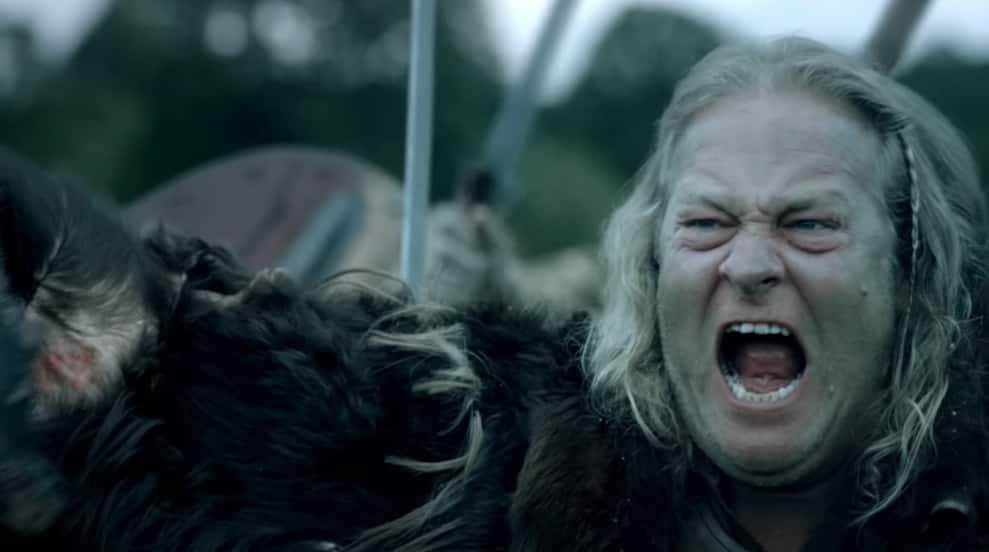 Barbarians Rising (2016– ), History Channel
Barbarians Rising (2016– ), History Channel
50. She Had The Upper Hand
If people were taking bets on Boudica versus the Romans, most people probably would have put their money on Boudica. After all, she had as many as 230,000 men fighting for her. The Romans, on the other hand, had just 10,000. With these odds, Watling Street should have been a slam dunk. However, Boudica's enemies had learned from her past victories—and now they had a clever plan to take her down.
 Barbarians Rising (2016– ), History Channel
Barbarians Rising (2016– ), History Channel
51. Her Foes Were Clever
The Roman leader, Paulinus, was no fool. He specifically chose to fight at Watling Street because of its finicky layout. Because Paulinus arrived first, he set up his men in a location that was nearly impossible to attack. With dense forest surrounding the Romans, Boudica would have no choice but to charge directly at her enemies. She would have no cover and no opportunity to sneak up on her foes. This had disastrous consequences.
 Warrior Queen (2003), Media Pro Pictures
Warrior Queen (2003), Media Pro Pictures
52. They Outsmarted Her
Boudica's fighting style wasn't very strategic. She basically showed up, burnt stuff down, and overwhelmed cities with the sheer number of her men. But this battle was different. As Boudica charged towards the Romans, they strategically threw sharp javelins at the Celts, immediately leading Boudica's men fall back in enormous swathes. Soon enough, Boudica became desperate to retreat—but getting out wasn't going to be easy.
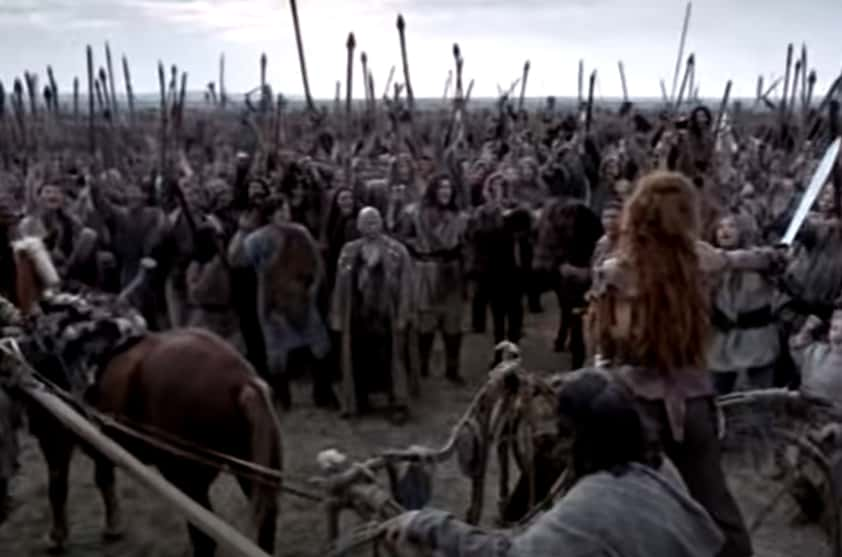 Warrior Queen (2003), Media Pro Pictures
Warrior Queen (2003), Media Pro Pictures
53. She Was Trapped
After so many victories, Boudica made the difficult decision to retreat—only to realize that she'd confined herself inside a death trap. You see, Boudica was so sure that she would win against the Romans that she invited her fighters' families to come watch the stand-off. With relatives lining the outskirts of the field, Boudica and her men were trapped inside.
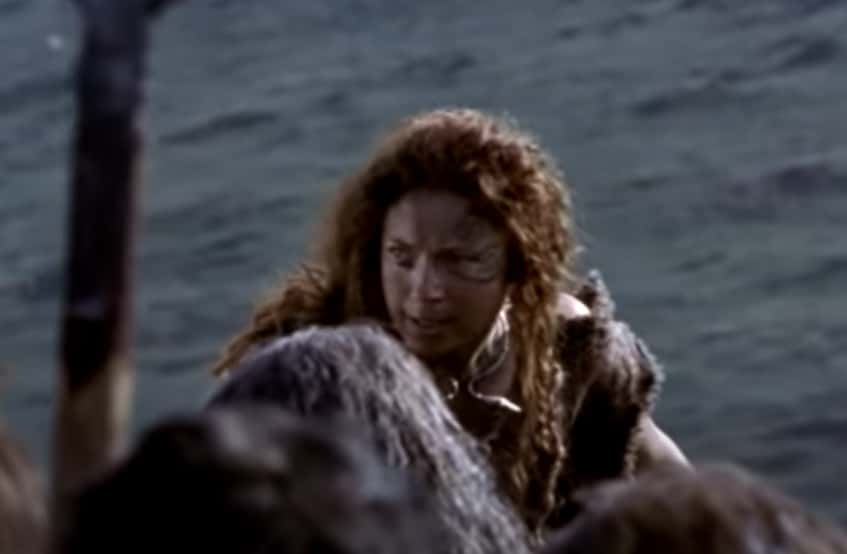 Warrior Queen (2003), Media Pro Pictures
Warrior Queen (2003), Media Pro Pictures
54. Her Men Suffered
In a tragic twist, the soldiers' own families' spelled their doom. They had travelled to Watling Street in bulky wagons that now stopped the forces from being able to leave the blood-soaked field. With the Celts trapped, the Romans took full advantage. They absolutely slaughtered Boudica's forces, felling approximately 80,000 of her people.
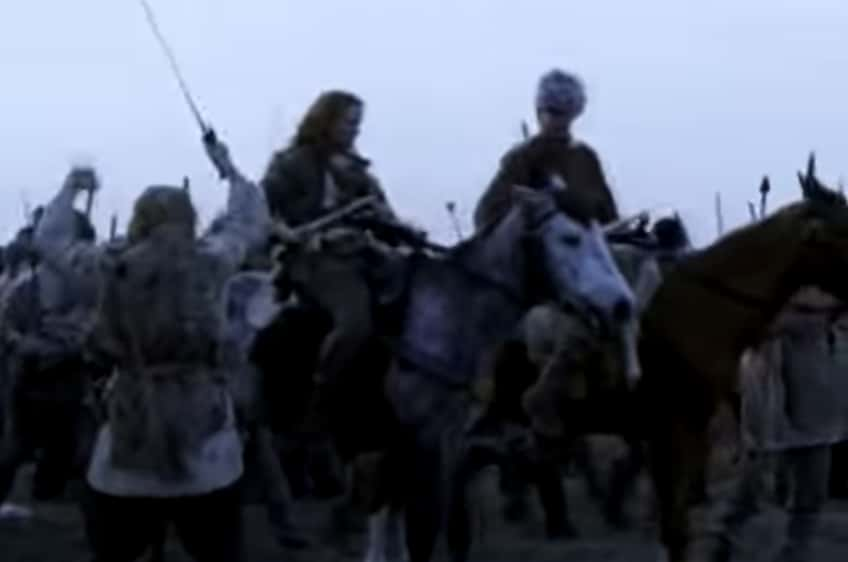 Warrior Queen (2003), Media Pro Pictures
Warrior Queen (2003), Media Pro Pictures
55. She Lost
The Romans defeated Boudica for a few key reasons. First, they chose the location and immediately gained the upper hand. Second, they had more powerful weapons. Third, and most importantly, their men received intensive training. They were, quite literally, raised to destroy enemies like Boudica. But even knowing all this, the final stats still hurt. Boudica lost 80,000 people. The Romans lost just 400. Ouch.
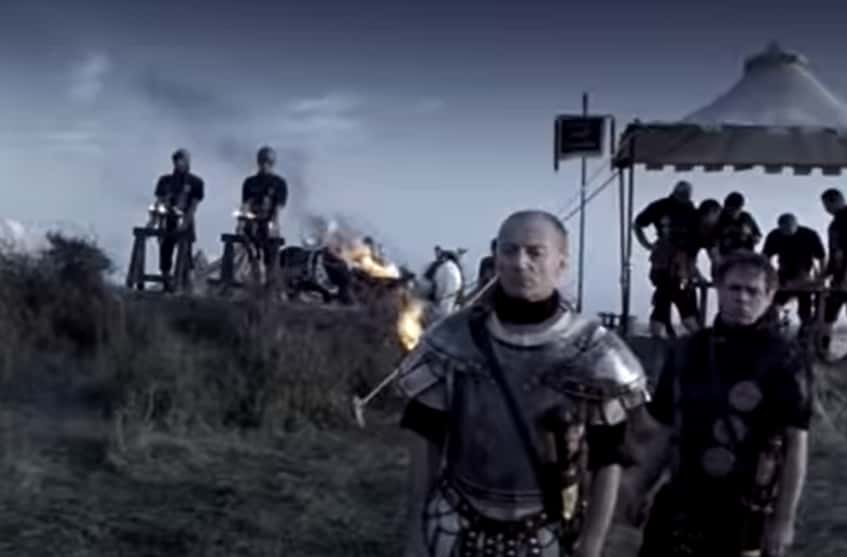 Warrior Queen (2003), Media Pro Pictures
Warrior Queen (2003), Media Pro Pictures
56. She Was So Close
What makes Boudica's eventual defeat even more painful is just how frustratingly close she was to victory. If she had won at Watling Street, she would have changed the course of British history. The Romans would have gone back to Italy, leaving Britain to the Celts. In losing this one battle, Boudica also lost so, so much more.
 Barbarians Rising (2016– ), History Channel
Barbarians Rising (2016– ), History Channel
57. Her Final Moments Are Mysterious
Boudica's final moments are still something of a mystery. According to one source, she managed to escape from the battlefield. However, she didn't live for very long. After Boudica suddenly fell ill and passed, the Celts honored their fallen queen with a hero's burial. However, there's another version of her demise that's far less peaceful.
58. She Took Her Own Life
According to Tacitus, Boudica realized that she had no chance of winning the fight. As the Romans closed in on her, the warrior woman decided to take control of her fate. Instead of letting the Romans capture her, Boudica poisoned herself on the battlefield. It was a brutal way to go—but the Romans’ plan was so bloodthirsty that it made poison look like child’s play.
 Warrior Queen (2003), Media Pro Pictures
Warrior Queen (2003), Media Pro Pictures
59. Her Enemies Would Have Made Her Suffer
If the Romans treated Boudica the way they treated some of their other captives, then honestly, she was right for going with self-inflicted poison. If the Romans captured an enemy, they would march them through the streets, then publicly execute them. Even after that, though, they wouldn't be done. They planned to display the bodies for all to see.
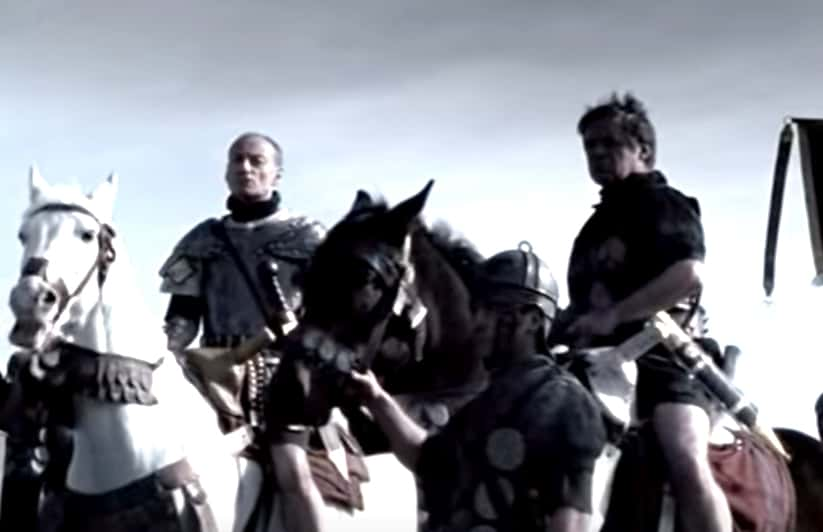 Warrior Queen (2003), Media Pro Pictures
Warrior Queen (2003), Media Pro Pictures
60. Her Resting Place Is Unknown
If you believe the rumors, Queen Boudica’s remains could be buried between platforms nine & ten at King’s Cross station in London (I wonder if Harry Potter saw her ghost?), or she might be underneath a McDonald's in Kings Norton, Birmingham. No trace of her has ever been found—but archaeologists continue to look for the warrior queen to this day.
One reason for our unending fascination with Boudica is her status as a first class HBIC. But another is because Boudica's story didn't end with her demise. Far from it...
61. She Scared Them Straight
When Boudica launched her rebellion, the Romans were basically caught with their pants down, but nobody can say they didn’t learn anything from it. They swore that they’d never allow anything like Boudica’s rebellion to happen again. After her defeat, they took steps to strengthen their settlements and protect themselves against any possible future uprisings. And the Romans weren't the only ones who never forgot the Iceni Queen.
 Warrior Queen (2003), Media Pro Pictures
Warrior Queen (2003), Media Pro Pictures
62. She Inspired Icons
The Romans saw Boudica as a cautionary tale for what happens when women are allowed to rule, but two British queens took a different view of the story. In the 16th century, Queen Elizabeth I used it to solidify her own rule. Then, in the 19th century, Queen Victoria followed Liz's lead and Boudica's story to prove that a woman could rule just as much as a man.
63. She Had Some Ironic Fans
Because of Queen Victoria's status as a Boudica fan girl, the rest of London quickly joined in on the love. They resuscitated her memory and transformed Boudica into a British icon—though there was an ironic twist to their devotion. After all, Londoners were worshipping the same woman who had famously burned their entire city down.
64. Her Statue Is Famous
To this day, Londoners just can't get enough of the lady who burnet their town to a crisp. If you've ever been to the city's core, you'll have seen Thomas Thoryncroft's crowning glory: "The Boudiccan Rebellion." The statue depicts the warrior queen riding on a scythed chariot with her daughters on either side. Two horses, rearing on their hind legs, lead the women onward.
However, the construction of the now-famous statue was almost as messy as Boudica's actual revenge quest.
65. Her Monument Was Kind Of A Mess
Although Thornycraft couldn't complete the full-size model of the statue before he passed, there was a teeny little hitch—no money was available to cast it in bronze, and there was no place to erect it. In 1898, the money was raised to cast it, but it wasn’t until 1902 that it found a permanent site at Westminster Pier in London. Prince Albert originally commissioned the statue (maybe as a gift for Victoria?) and even lent his horses as models. Sadly, he passed before it was completed.
66. She's Still Encouraging Butt-Kicking
At the onset of WW2, British Prime Minister Winston Churchill used Boudica as a rallying cry to Londoners. In one of his books, Churchill said, “it is the primary right of men to die and kill for the land they live in, and to punish with exceptional severity all members of their own race who have warmed their hands at the invader's earth.” Yeah, sounds like a Boudica move.
67. Even Her Name Is A Secret
Would a Boudica by any other name kick butt so thoroughly? Maybe—if only because this girl has had a lot of names. From Voadicia to Bunduca, Boadicea to Boudicca, it seems like everyone wanted to re-spell her moniker. For what it's worth, Kenneth Jackson, a professor of Celtic languages, thinks all these options are wrong. According to him, the right spelling is Boudica (we followed his lead).
68. She Is Legendary
Since the Celts didn’t have written records, much of what’s known about Boudica’s rebellion comes from Roman historians Tacitus and Cassius Dio. Tacitus got his information from his father-in-law, who served in Britain during that time. Dio, on the other hand, lived about 100 years after Boudica’s rebellion, so he would've had even less direct knowledge of her than Tacitus. The two biographies differ in a number of aspects, but they agreed on one thing: Boudica was a cunning and powerful woman.
 Barbarians Rising (2016– ), History Channel
Barbarians Rising (2016– ), History Channel
69. She's Still Relevant Today
If you just need more Boudica in your life, you're in luck: There are a bunch of TV shows and movies either about her or inspired by her. Check out 2003's Boudica, 2006's Warrior Queen Boudica, and 2019's Boudica: Rise of the Warrior Queen. And whenever you see a feisty British redhead in a period drama—think Ygritte in Game of Thrones—you can bet that someone drew on the legend of Boudica.
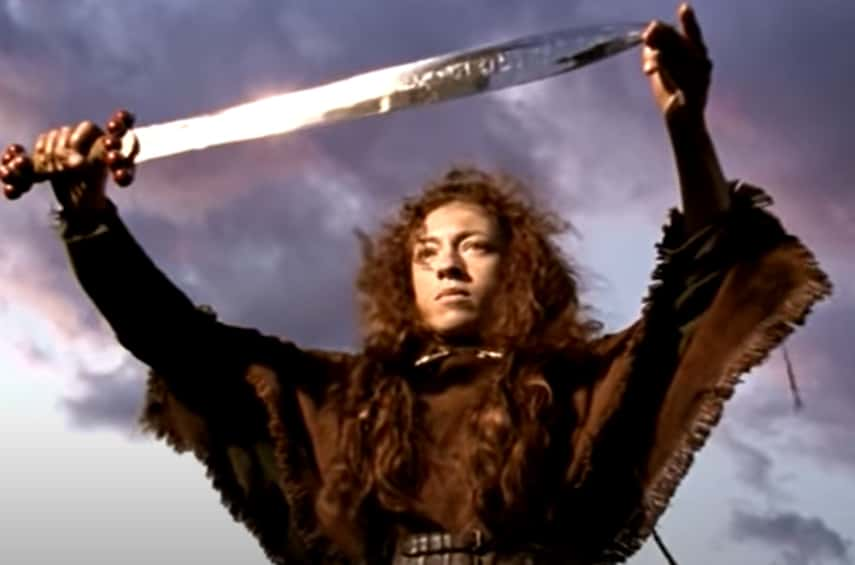 Warrior Queen (2003), Media Pro Pictures
Warrior Queen (2003), Media Pro Pictures
70. Her Fury Made Its Mark
For centuries, people searched for the truth behind Boudica’s legend—until a jaw-dropping discovery changed everything. When archaeologists unearthed the ground under Colchester, they found a layer of burnt, blood red clay. Finally, historians had proof that Boudica had actually burned the city to the ground. The discovery is now known by a fittingly kick-butt name: “Boudica’s Destruction Horizon.”
Sources: 1, 2, 3, 4, 5, 6, 7, 8, 9, 10, 11, 12, 13, 14, 15, 16, 17, 18, 19, 20, 21, 22, 23, 24, 25, 26, 27


